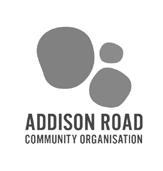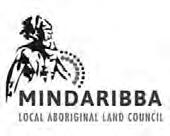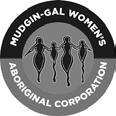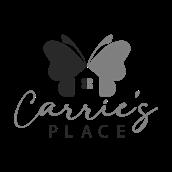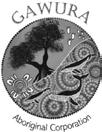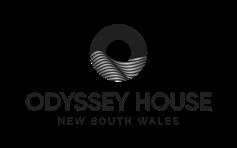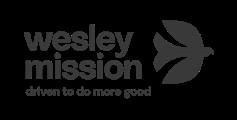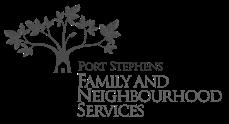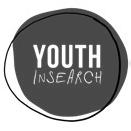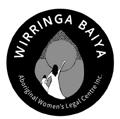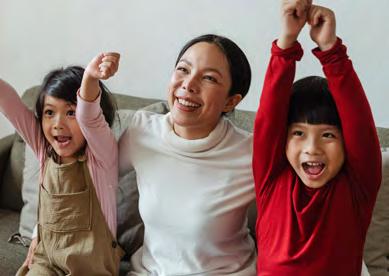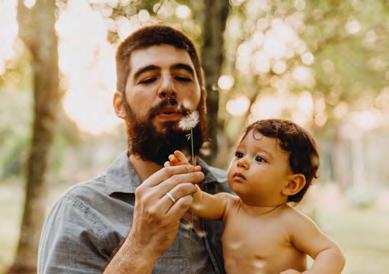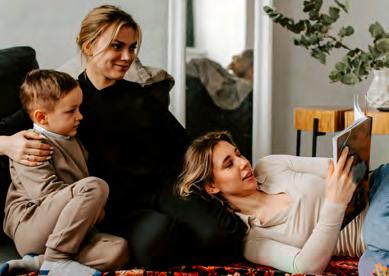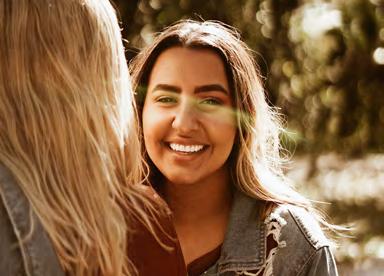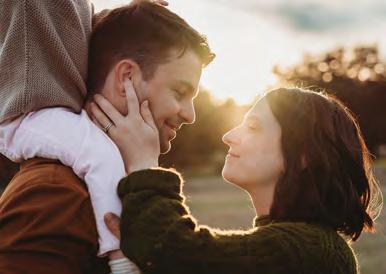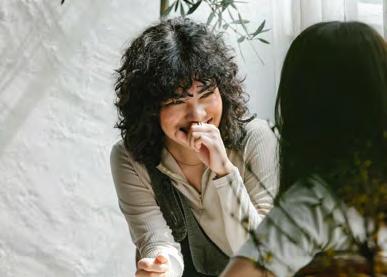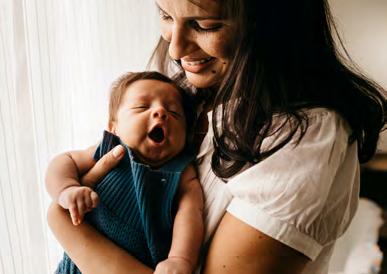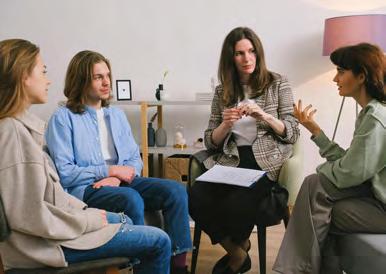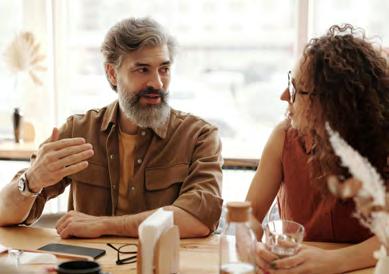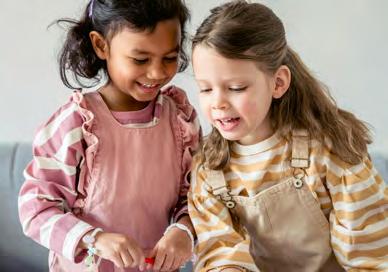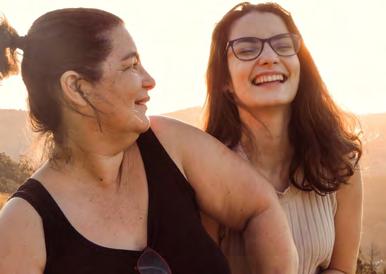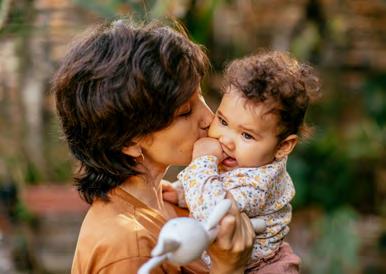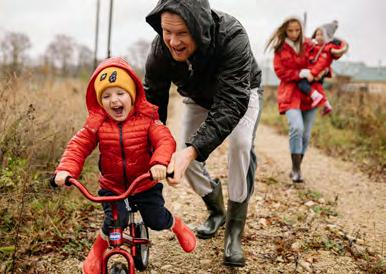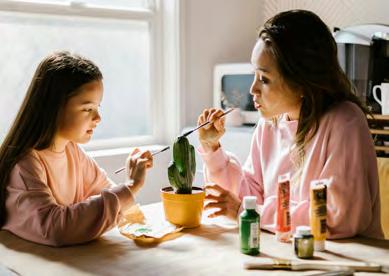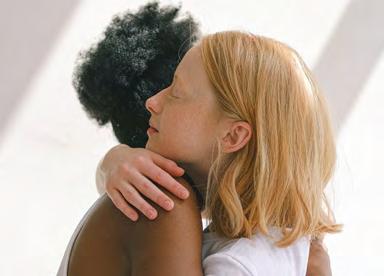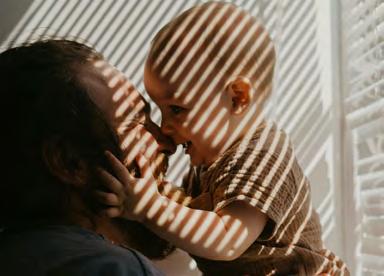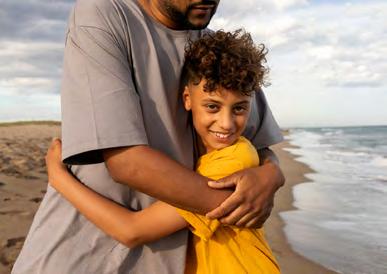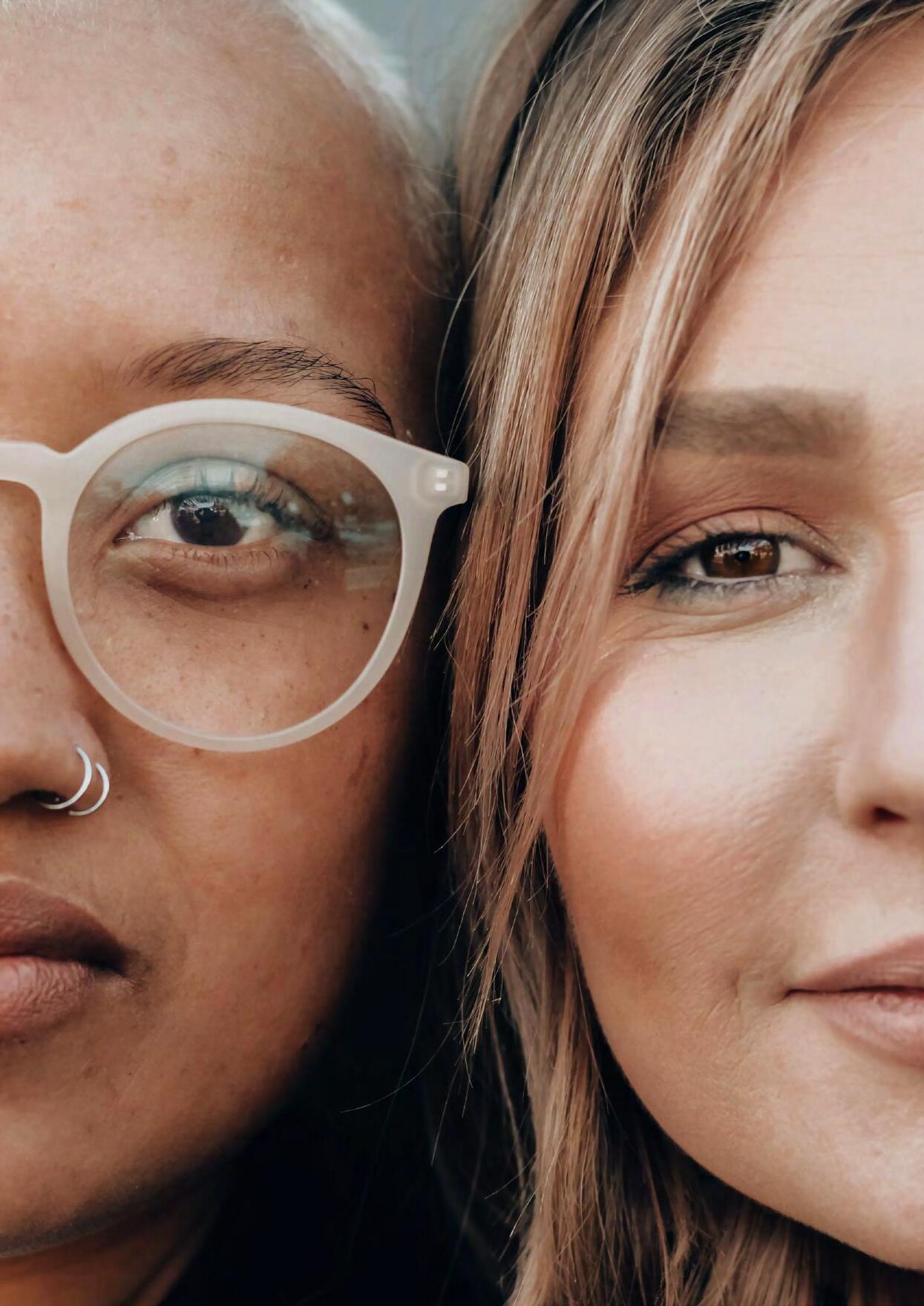

Relationships Australia NSW Impact Report 2024-2025
Together in Relationship
We are in relationship with each other and with Country.
Relationships Australia NSW acknowledges Aboriginal and Torres Strait Islander peoples as the Traditional Custodians of the lands and waters where we live and work. Our services span many Aboriginal Nations, and this report was created on Darug Country, where our head office is located.
We honour the ancestors who first walked these lands, and pay our respects to Elders past and present, who carry the cultural wisdom, stories, traditions and dreaming.
We recognise the enduring impacts of colonisation, intergenerational loss and grief, and are committed to reconciliation. Our work is dedicated to building a more just future – one that honours resilience, strength and the self-determination of Aboriginal and Torres Strait Islander peoples and communities.
Acknowledgement of Lived Experience
We know no two relationships are the same. We welcome and support the unique contributions of Aboriginal and Torres Strait Islander peoples, people with disability, people of all ages, life experiences, cultural backgrounds, ethnicities, language abilities, sexual orientations, gender identities and expressions.
We acknowledge the lived experience of children, families, friends and communities who carry the impacts of relationship distress, estrangement, loss or breakdown –and those who have experienced domestic, family and sexual violence. We also recognise the pain endured through institutional abuse and displacement, and the strength of those continuing to navigate these challenges today.
We respect the voices of people with lived and living experience and deeply value their role in shaping the services we deliver and the strategy we pursue.
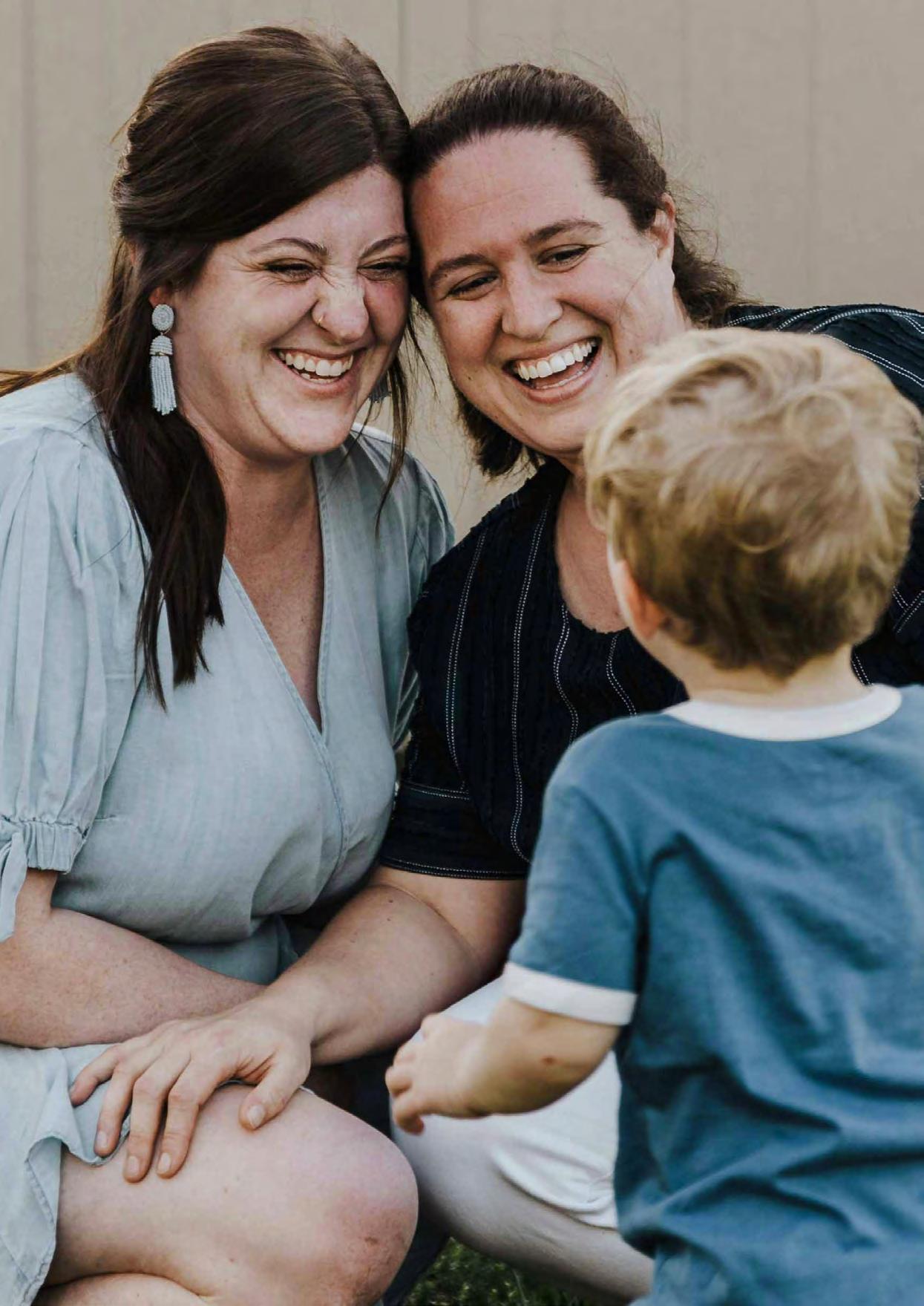
WE’RE RELATIONSHIP PEOPLE
Who We Are
For 77 years, Relationships Australia NSW has supported people through life’s toughest relationship challenges. We stand alongside people facing separation, conflict, trauma, loneliness and abuse, offering support when it is needed most.
Our services include counselling, separation support, group programs and tailored services across every stage of life. We provide help in person, over the phone and online, with many services offered on a sliding fee scale to ensure accessibility.
As part of the nationwide Relationships Australia network, we share a simple belief: that healthy, connected relationships have the power to transform lives, and that no one should face relationships challenges alone.
Message From Our CEO + Chair
This year has shown us just how deeply people rely on strong relationships to navigate life’s challenges. Across NSW, families and communities continued to feel the weight of cost-of-living pressures, loneliness, mental health struggles, and the ongoing impacts of violence and trauma. Against this backdrop, the role of Relationships Australia NSW has never been more vital.
Every day, our practitioners were there in the moments that matter most – supporting people through separation and family conflict, helping them recover from violence and abuse, and strengthening connection across communities.
The voices and experiences of those we support are at the heart of this report. Behind every counselling session, mediation, or group program is a story of someone seeking safety, healing, or simply a place to belong. Hearing and sharing these stories are the greatest privileges of our roles, and a powerful reminder that relationship support is not a “nice-to-have” – it is essential to health, wellbeing and resilience.
Over the past year, we supported nearly 29,000 clients through counselling, mediation, group programs and specialist services. More than 13,500 counselling sessions and support services were delivered, with an additional 8,709 people supported through seminars, workshops and presentations.
Expanded funding enabled us to grow our Domestic, Family and Sexual Violence Linker program, while new investment in men’s behaviour change programs means more families can find pathways out of violence. We proudly launched our third Stretch Reconciliation Action Plan, embedding reconciliation more deeply and locally across our centres, and strengthened our advocacy and sector leadership through contributions to family law, elder abuse and domestic and family violence reform.
The stories highlighted throughout this report show the courage and resilience of those who reach out for support. They also remind us of the extraordinary dedication of our team, who walk alongside people through life’s toughest challenges. To our staff, partners, funders, and most of all, to the people who place their trust in us –a heartfelt thank you.
The need for strong, safe and supportive relationships has never been clearer. Together, we are building a more connected and compassionate future for people and communities across NSW.
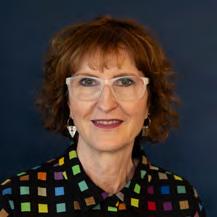
Elisabeth Shaw Chief Executive Officer
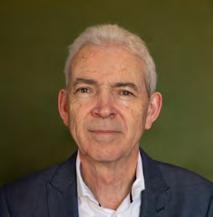
Dr Stephen Hollings Board Chair
Our Impact
Supporting People and Families
28,686
people supported across NSW
counselling sessions delivered 13,759
people supported through separation 9,230
people reached through seminars, workshops and presentations 8,709 of clients satisfied, with 87% feeling heard and understood 84%
Driving Awareness and Education
media mentions across TV, radio, print and online 2,600 growth in video views –now reaching 274,307 74% social media reach 1.1m
people engaged in digital relationship education 1.3m
Why People Come to Us Strengthening Sector Leadership
Loneliness is one of the greatest risks to our health –and connection is the cure
In June 2025, the World Health Organisation released From loneliness to social connection: charting a path to healthier societies , declaring social connection a global public health priority.
The report found that loneliness and isolation are as harmful as smoking or obesity, contributing to hundreds of thousands of premature deaths each year. The message is clear that strong relationships and a sense of belonging are essential to wellbeing.
This reality is reflected across NSW and Australia. Research from Relationships Australia shows:
+ Loneliness has reached crisis levels. 5.1 million Australians, or almost one in four, often feel very lonely, up from 20% in 2022. Almost half of young people aged 15 to 25 report loneliness.
+ Relationship distress is widespread. Nearly one in three partnered people feel distressed about their relationship, and almost half never seek help.
+ Violence and abuse remain common. More than four million Australians have experienced partner violence or abuse since the age of 15, and one in six older people have faced elder abuse in the past year.
Disconnection undermines health, safety and community resilience. Yet there is hope. The WHO highlights social connection as one of the most powerful protective factors for health. Supportive relationships improve wellbeing and quality of life at every stage.
At Relationships Australia NSW, every counselling session, mediation, group program and community initiative strengthens connection and resilience, helping individuals, families and communities thrive.
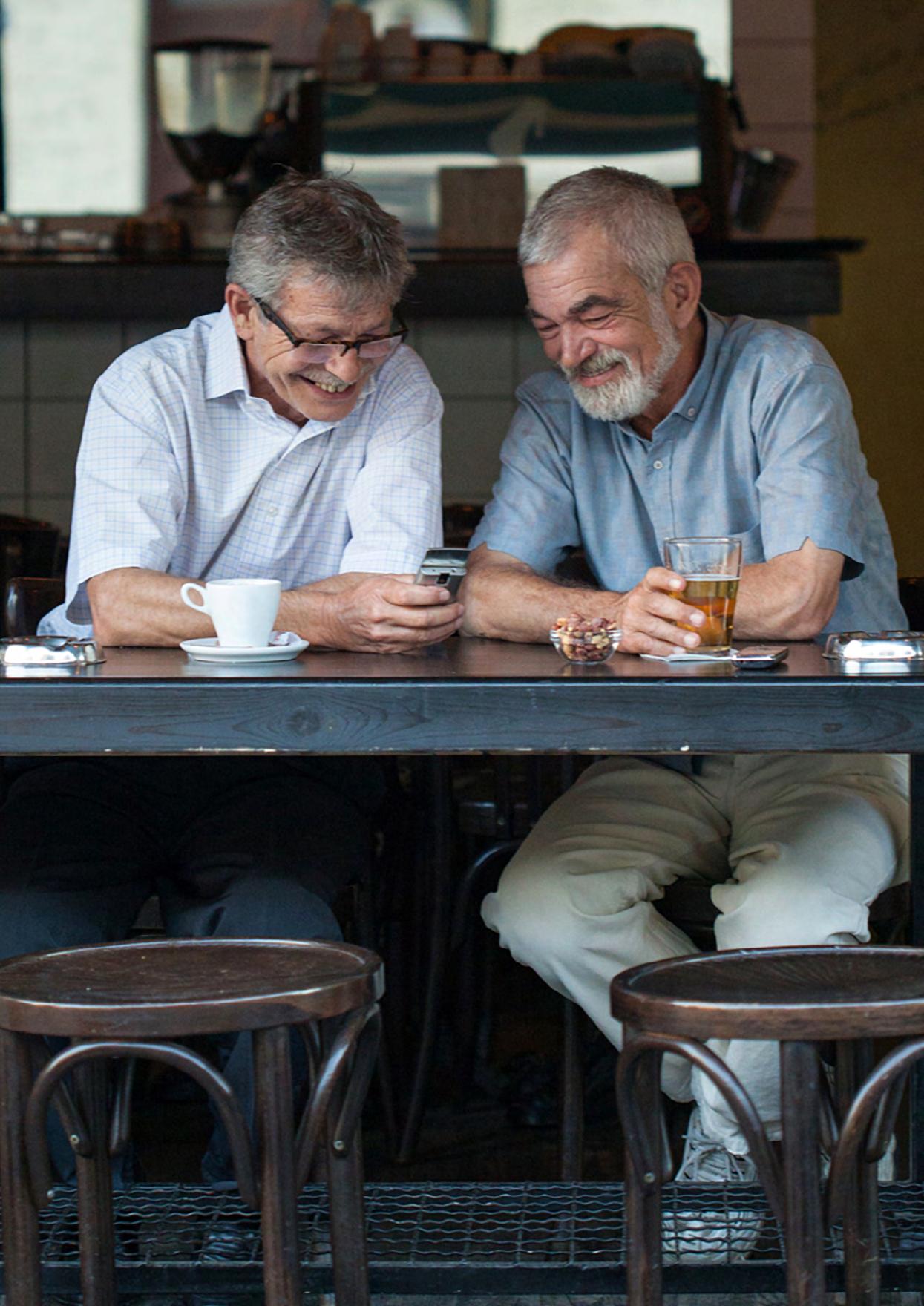
The Reach of Our Impact
CENTRE
HEADSPACE
CARE AND CONNECT
FAMILY COURT
FEDERAL COURT CIRCUIT
OUTREACH
Boundaries represent the Primary Health Networks across New South Wales.
BROKEN HILL Wilyakali Country
WAGGA Wiradjuri Country
ALBURY Wiradjuri Country
DUBBO Wiradjuri Country
FORBES Wiradjuri Country
GUNNEDAH Kamilaroi Country NARRABRI Kamilaroi Country
MUDGEE Wiradjuri Country
ORANGE Wiradjuri Country
BATHURST Wiradjuri Country
COWRA Wiradjuri Country
LITHGOW Wiradjuri Country
KATOOMBA Darug and Gundungurra Country
INVERELL Kamilaroi Country
TAMWORTH Kamilaroi Country
ARMIDALE Anaiwan Country
LISMORE Widjabul Country
NORTH RICHMOND Darug Country
PENRITH Darug Country
PARRAMATTA Darug Country
MOSS VALE Gundungurra and Dharawal Country
PORT MACQUARIE Birpai Country
FORSTER Worimi Country
MAITLAND Wonnarua Country
NEWCASTLE Awabakal and Worimi Country
GOSFORD Darkinjung Country
DEE WHY Gai-mariagal Country
SYDNEY CITY Gadigal Country
LIVERPOOL Darug and Tharawal Country
WOLLONGONG Dharawal Country
KIAMA Dharawal Country
SHELLHARBOUR Dharawal Country
Our Impact Areas
We walk alongside people through life’s changes and challenges, helping them build and sustain the connections that matter most. For 77 years, we’ve supported individuals, families and communities to heal, grow and strengthen the relationships that shape their lives. Our work is centred on fostering safety, belonging and hope, and on helping people recover, rebuild and reconnect. We also advocate and educate to create a society where healthier relationships and stronger mental wellbeing can flourish.
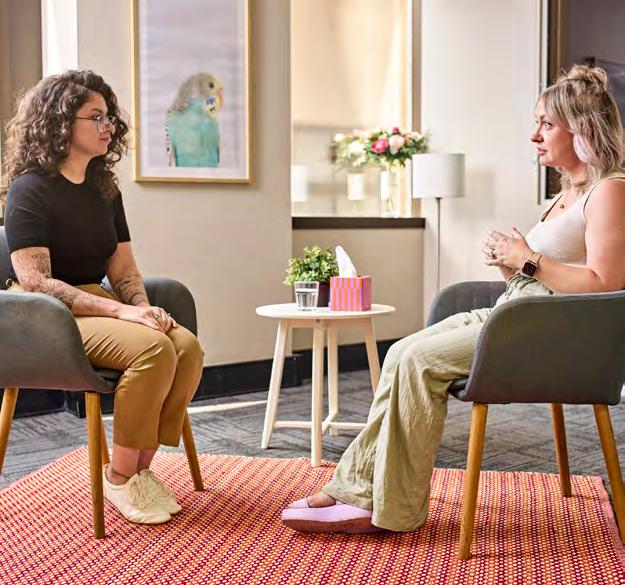
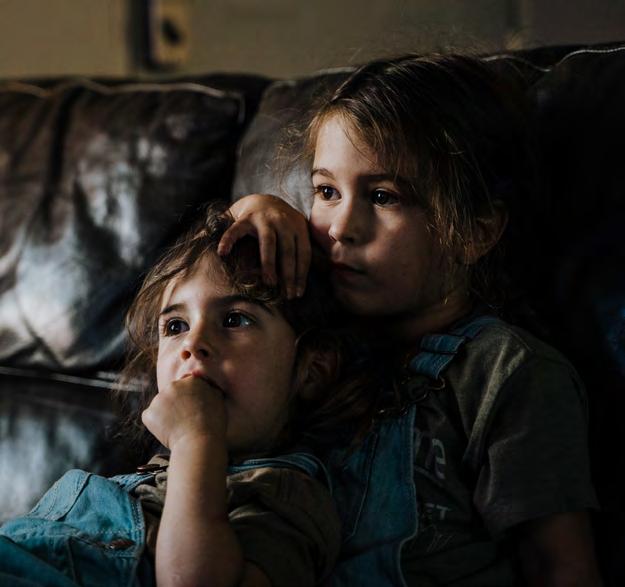

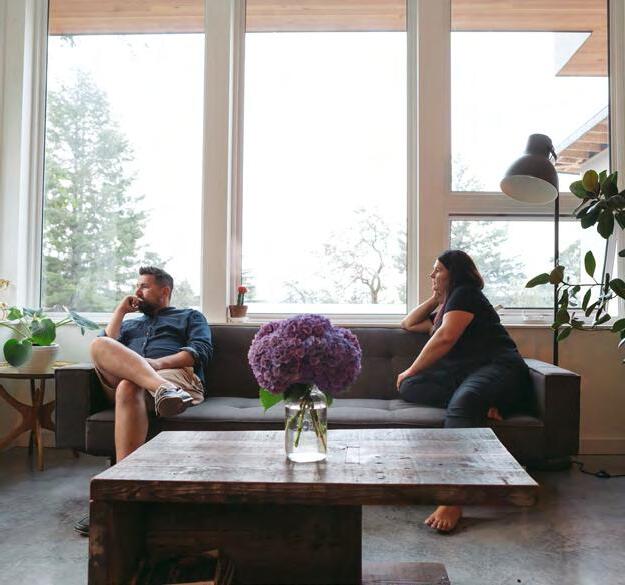
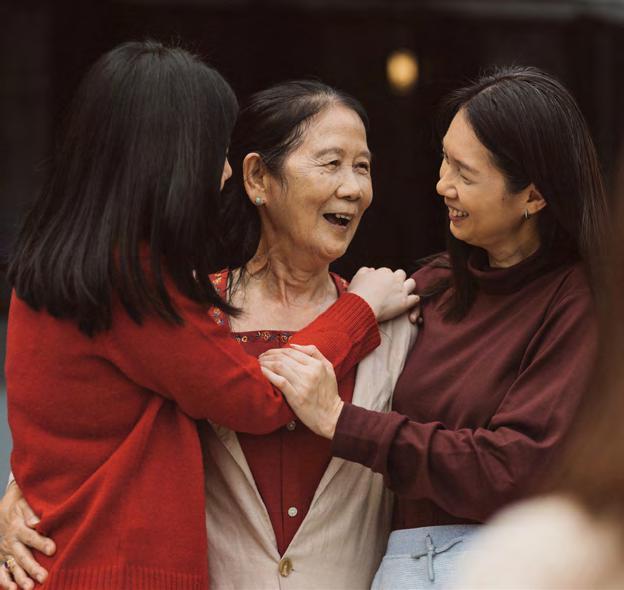
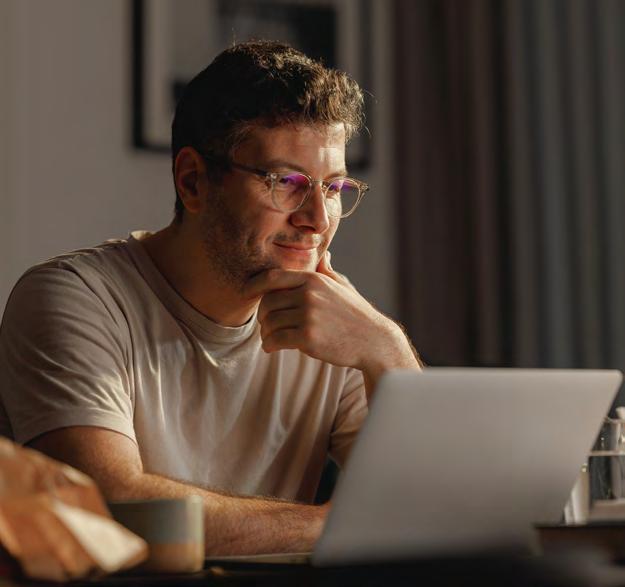
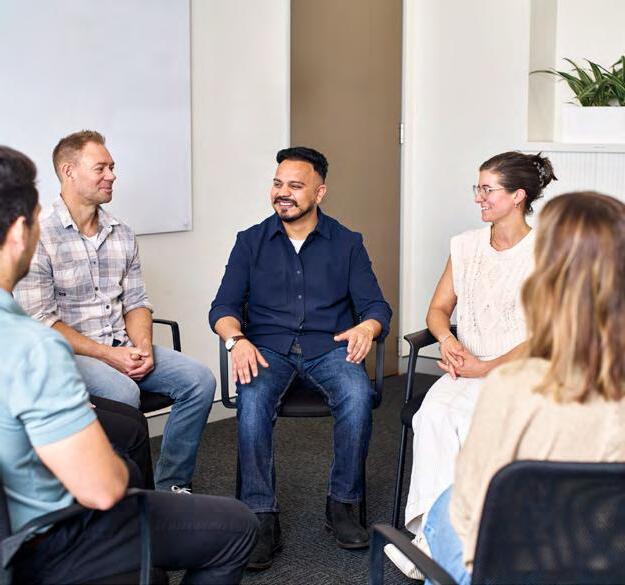
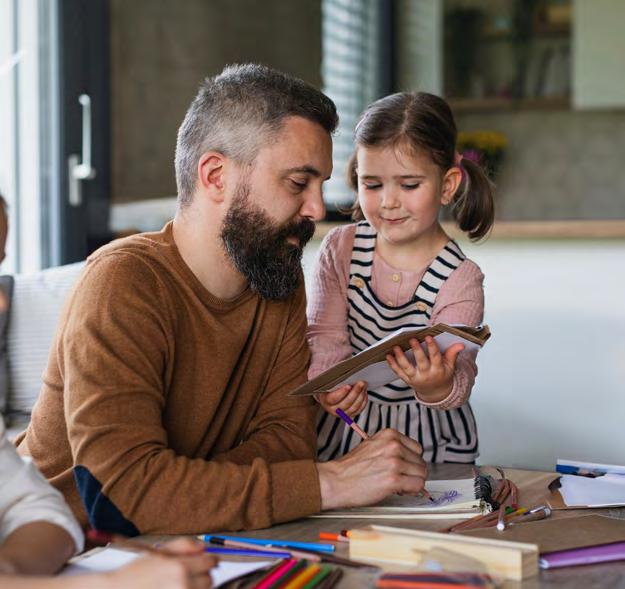
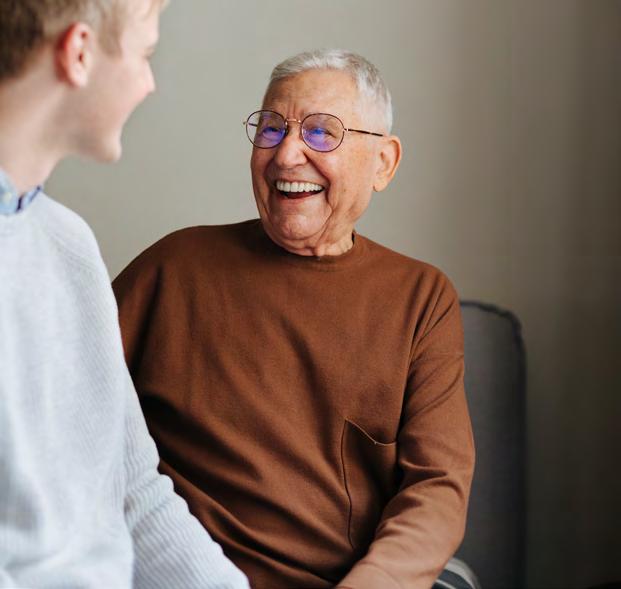
Counselling
“I could not be more pleased with the empathy, compassion and deep understanding I received. Thank you. I’m so glad that I reached out.”
INDIVIDUAL COUNSELLING CLIENT
13,759
counselling sessions and support services delivered for individuals, couples and families
reported satisfaction 85% felt heard and understood 88%
5,440
people supported 5,593 phone or online sessions
Our counselling services provide individuals, couples and families with a safe, professional space to heal, repair and strengthen their most important relationships.
This year, people came to us with a wide range of concerns – from family conflict and separation to domestic and family violence, anxiety, loneliness and grief. Whatever the issue, our counsellors ensure clients feel heard, understood and supported.
We advanced two key practice areas:
+ Supporting neurodivergent clients in couples counselling – we published a dedicated practice paper, developed tailored training (to roll out next year) and shared our expertise at the Australian Association of Family Therapy Conference.
+ Strengthening support for separated parents – we updated guidelines and training in child-inclusive practice, giving children a safe voice in conflict while helping parents prioritise their wellbeing.
Counselling also connects seamlessly with group programs such as Parenting After Separation, Tuning in to Teens and Circle of Security. With many clients experiencing domestic and family violence, strong referral pathways continue into our Taking Responsibility men’s behaviour change and Women Choice and Change programs.
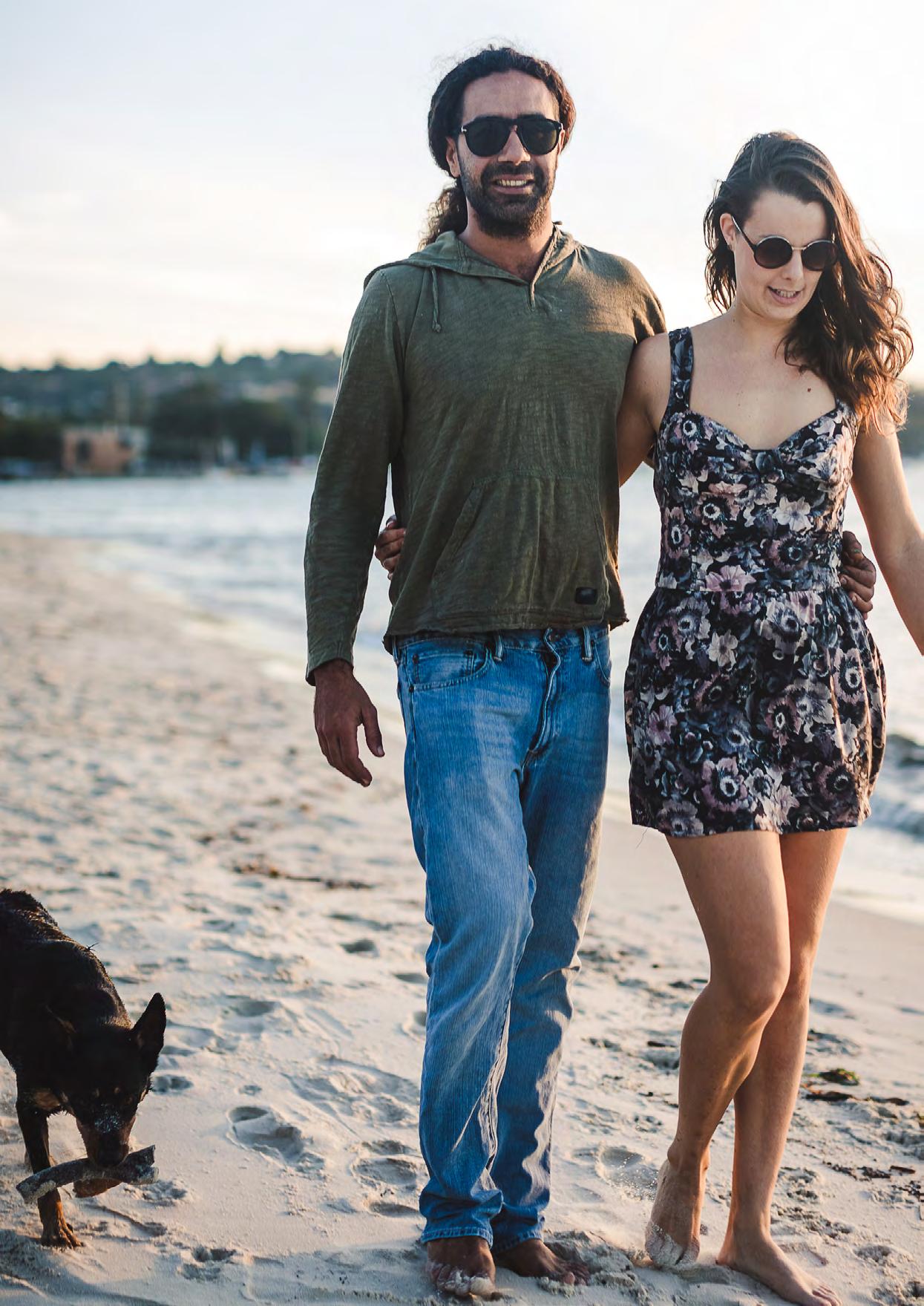
“Thank you so much for helping us to navigate a difficult experience with so much care.”
COUPLES COUNSELLING CLIENT
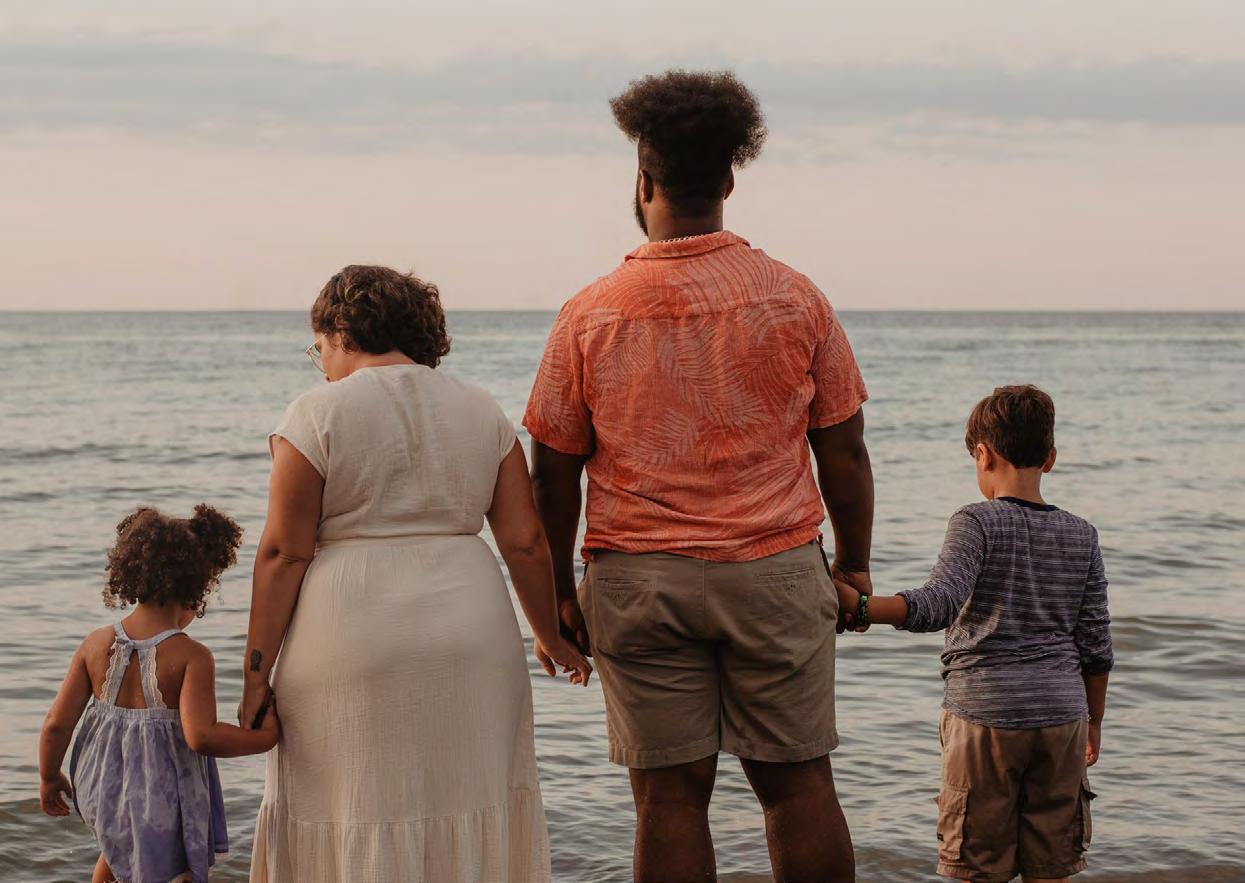
Supporting couples to heal after violence
After 18 months apart, Mei and Rami decided to try couples counselling. They shared two children and, despite a history of family violence, had recently moved back in together. For Mei, the priority was feeling confident the violence would not return.
Rami had completed the Taking Responsibility men’s behaviour change program and was continuing individual counselling when they reached out. The counsellor began with safety, holding sessions separately so both could speak freely. Together, they worked towards more effective communication and clear strategies to keep the relationship safe – supporting Rami to take accountability for his actions and behaviour, and enabling Mei to raise concerns and disagree safely.
Rami was supported to reflect on the impact of his actions on Mei and their children, and to apply the tools he had learned in the program. Mei’s strength in protecting herself and her children during the hardest times was also acknowledged.
With safety in place, the couple explored their communication patterns, the impact of childhood trauma and the ways past violence still shaped their relationship.
By the end of counselling, both described feeling more self-aware, especially in moments of stress, and more attuned to each other. While especially critical for Rami, they both had learned to pause, regulate emotions and revisit difficult conversations more productively later. Most importantly, their children now had a safer, calmer home environment – one where conflict no longer dominated family life.
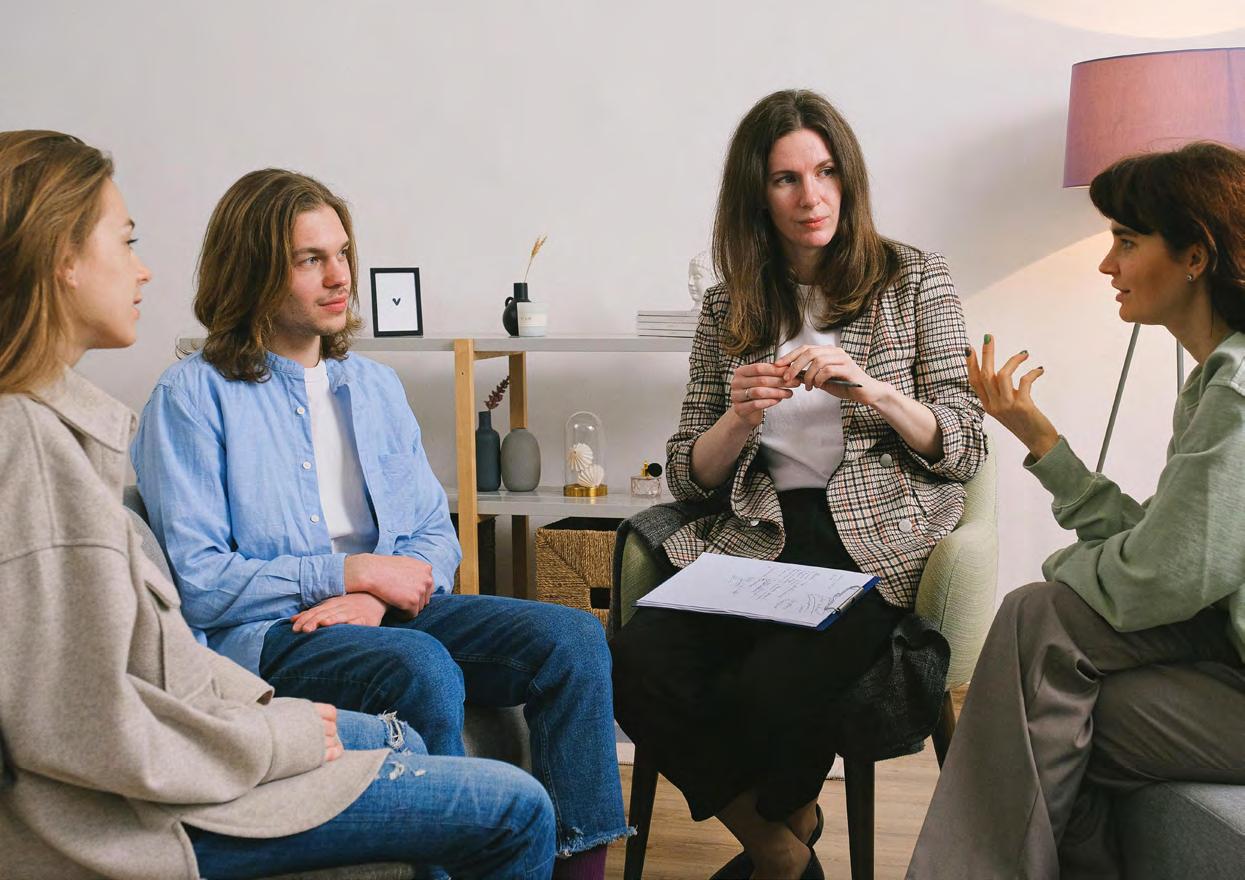
Supporting families to find common ground
Lina was eight when tensions between her biological parents and the aunt and uncle who had raised her since birth came to a head. This arrangement seemed to have worked well for years, but mistrust grew over time, and after one of their regular visits, Lina’s parents didn’t return her as planned. Conflict quickly spiralled, leaving the relationships between the adults fractured and Lina caught in the middle.
Family counselling gave everyone a safe space to talk. At first, the sessions were filled with sadness, anger and exhaustion. The counsellor worked with each couple separately before bringing them together, helping them shift the focus away from blaming the other couple, and onto Lina’s needs.
Over time, conversations softened. Both families spoke about wanting the fighting to stop and about putting Lina first. Today, instead of tense, stressful and potentially unsafe changeovers, all four adults can spend time with her together. They’ve also agreed that decisions about her future should be made as a family, not in court, and have confidence that can now be achieved.
Mediation
“Grateful the government provides these services. Resolutions were reached much more amicably than would have been possible without your help.”
FAMILY MEDIATION CLIENT
separation mediation sessions delivered
2,396 felt heard and understood 83%
2,984 growth in Access Family Mediation 320% parents supported through Kids in Focus, +28% YoY.
Every year, thousands of families turn to us to navigate separation, resolve conflict and make difficult decisions about parenting and property.
In 2024–25, we delivered more than 3,000 mediations through our Family Relationship Centres and online Access Family Mediation Service, with strong demand in regional and rural communities. Demand for our services rose this year, with separation support mediations up 9% year-on-year and online sessions up 344%.
Sessions increasingly included opportunities for children to take part in consultations, ensuring their voices were heard and their needs prioritised. Families were also linked to additional support – from counselling and parenting programs to legal, housing, financial and specialist domestic and family violence services.
Our Family Dispute Resolution team rose to the challenge of two major waves of Family Law Act reform and the introduction of the Family Dispute Resolution Regulations 2025. These changes reshaped practice, expanded mediator responsibilities and set a new benchmark for how suitability is assessed.
To support clients through this complex landscape, we launched a suite of short, plain-language property mediation videos, helping people prepare with less confusion and anxiety.
Together, these efforts mean more families are resolving conflict safely, making informed decisions and moving forward with respectful, sustainable arrangements.
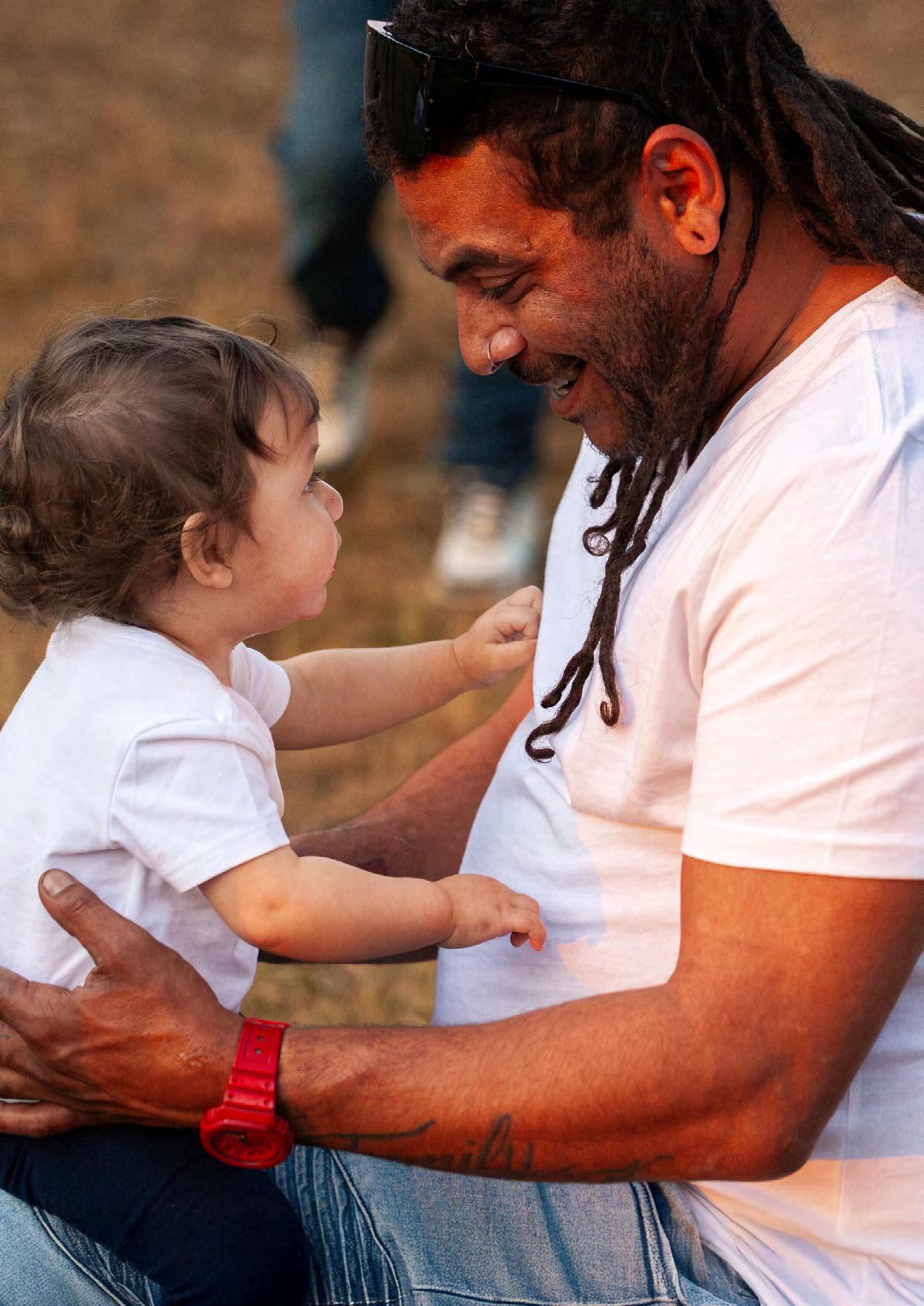
Supporting parents to create a safe path forward
By 2024, Lily and Ben’s relationship had broken down. They shared three young children, but Ben had not seen them for six months, leaving him feeling shut out, while Lily feared for their safety in his care. Both carried histories of trauma and mental health challenges, and Lily was managing the strain of raising children with significant special needs. With trust eroded, their communication often broke down into legal threats.
Ben is an Aboriginal man and when he sought family mediation, he was supported by an Aboriginal Family Advisor. Separate introductory sessions gave both parents space to share their sadness and frustration, and mediation helped shift the focus back to their children. Agreements were reached for the children to spend time with their dad in a safe setting, and for both parents to strengthen communication through our Parenting After Separation program
When the situation became unsafe again the following year, Lily was linked to counselling and legal services, while Ben joined our Taking Responsibility men’s behaviour change program. A legally assisted mediation then set new arrangements, including regular, well-planned time with the children and a pathway towards overnight visits.
Months later, Ben thanked the practitioners “on behalf of my children’s future selves.” Lily also reflected that things were going better than they ever had. For the first time, the children could see both parents working together – not perfectly, but with enough stability to feel supported on both sides.
“I felt heard and respected. Thank you so much, it’s making a positive impact on my mental health.”
FAMILY MEDIATION CLIENT
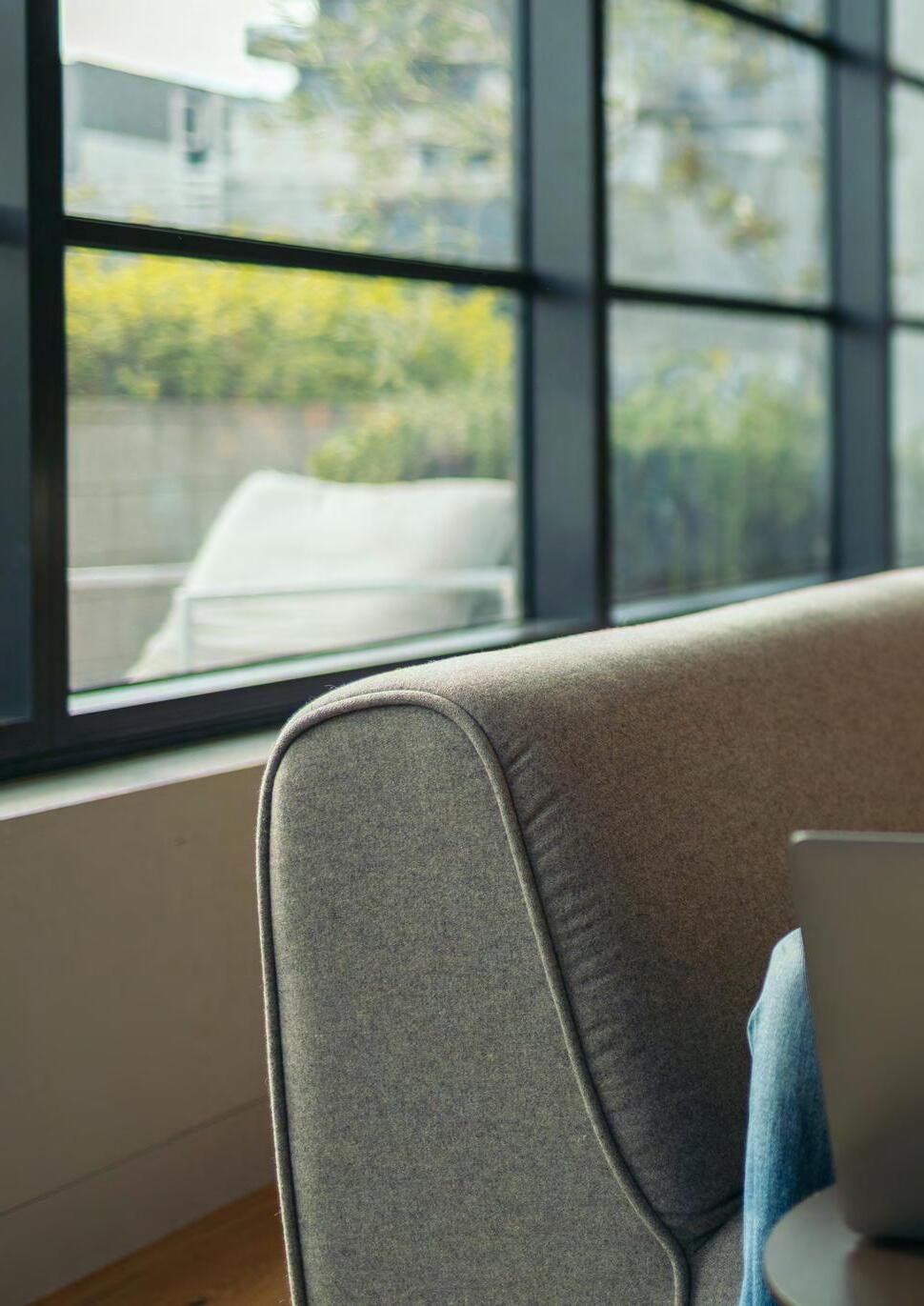
Supporting parents to bridge distance and stay connected
Jim was referred to us by a local community legal centre. He shares a six-year-old son, Charlie, with his former partner, Alyssa. Since their separation two years ago, staying connected had become increasingly difficult. The parents lived four hours apart, and Jim’s time with Charlie was limited by distance, travel costs and a lack of trust.
Jim described feeling marginalised from his son’s life, especially after Alyssa moved to southern NSW without his agreement. While he paid child support, the long trips were overwhelming – often eight hours return for only brief visits. He hoped for an arrangement that gave Charlie more predictable, meaningful time with both parents.
Jim and Alyssa were referred to our Access Family Mediation service, allowing them to take part in family dispute resolution online. During mediation, Jim spoke about his grief at missing milestones and his determination to remain a consistent presence. Despite high emotions, with skilled facilitation, he and Alyssa agreed on a new schedule of school holiday blocks and alternate weekend visits every two months, with travel shared equally. They also applied for a child support review to recognise Jim’s travel costs. For Charlie, the new plan meant less disruption, more certainty, and the reassurance that both parents would remain present in his life, despite the distance.
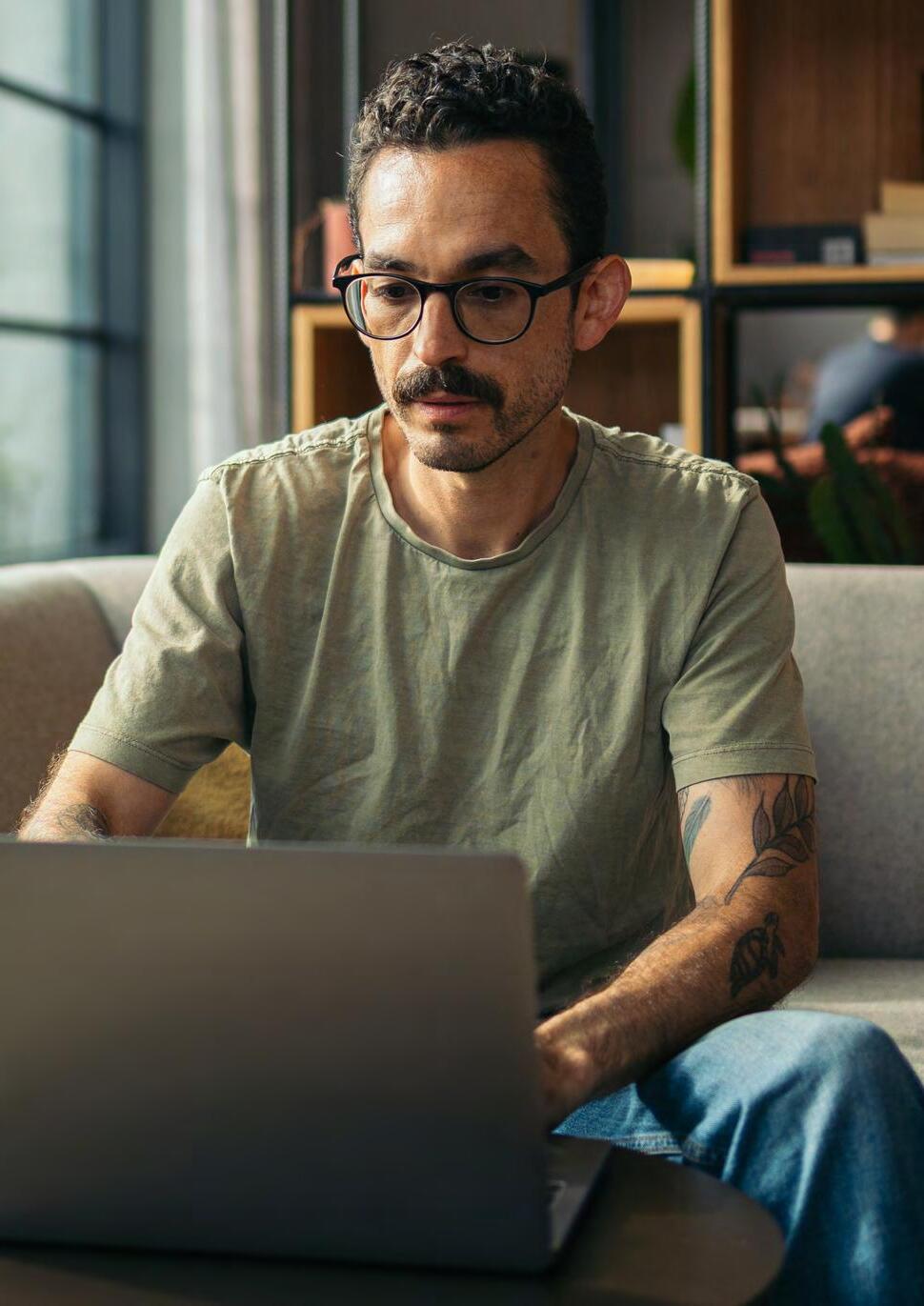
Groupwork
“Thank you for creating something LGBTQIA+ specific. You held space so wonderfully and acknowledged all types of relationship structures – it felt fully inclusive.”
PROUD RELATIONSHIPS GROUP PARTICIPANT
128 people supported, +12% YoY
group programs delivered
2,245 client satisfaction 88%
Our group programs give people the tools to build stronger relationships and greater confidence in a safe, supportive environment with people who are experiencing similar challenges. Delivered both online and in person, the workshops cover a wide range of needs – from parenting after separation or managing anger, to developing healthier communication.
Participation grew by 12% this year, with parents and carers joining programs such as Circle of Security, Tuning in to Kids and Teens and Parenting After Separation, gaining practical strategies to understand their children’s needs and strengthen family bonds.
We also launched the Parenting After Separation trilogy – three tailored programs for diverse groups of parents, including victim-survivors of family violence and those with no current contact with their children.
Our Proud Relationships LGBTQIA+ group continued to make a strong impact. Facilitated by LGBTQIA+ community members, this six-week program provides a safe, inclusive space to explore relationship patterns, strengthen communication and build healthier connections. Participants consistently report greater self-awareness, improved confidence in setting boundaries, and noticeable positive changes in their relationships.
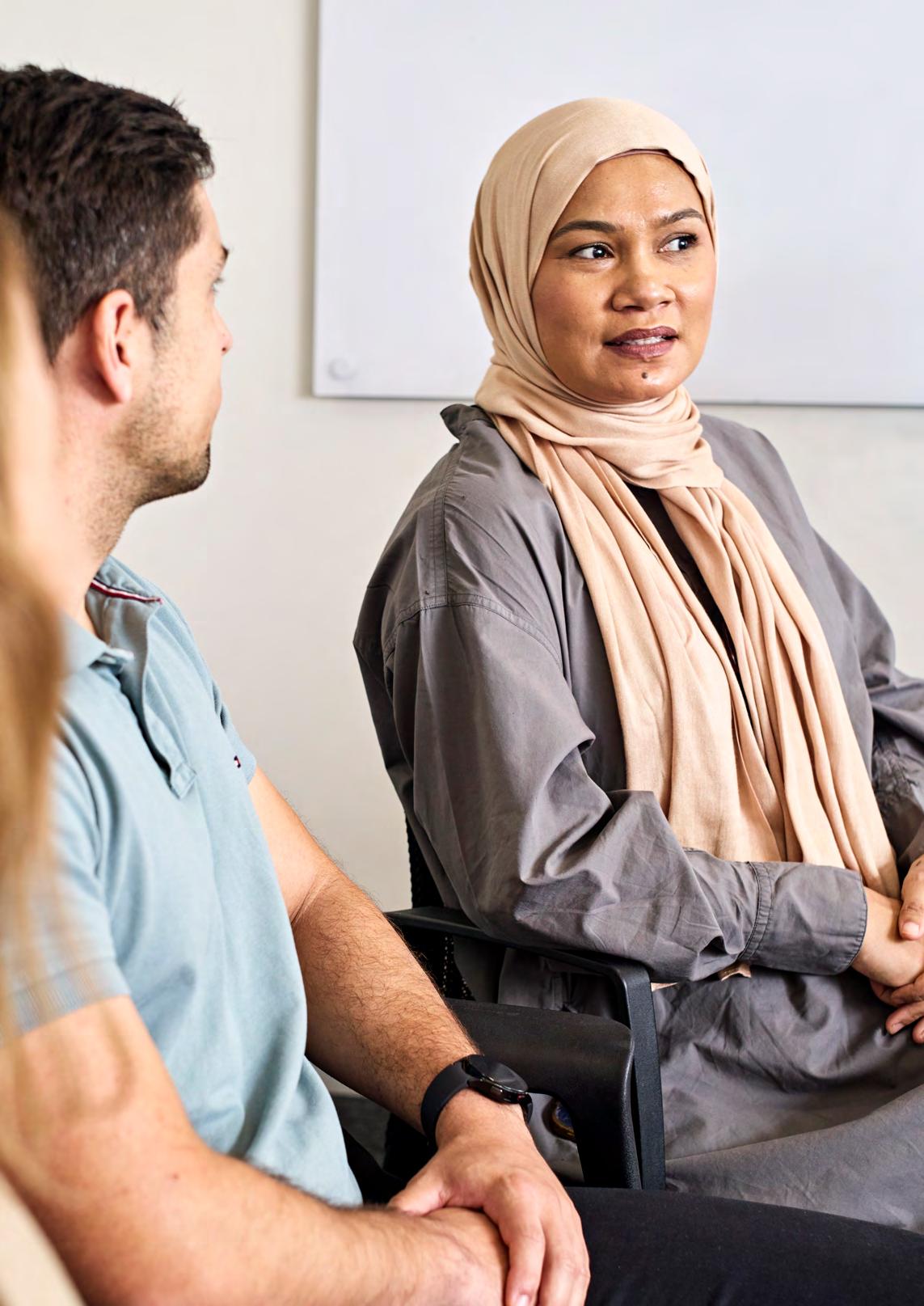
“Joining the group was a turning point for me. I was able to listen to other parents share their stories and it was comforting to know they were navigating similar challenges.
Looking back, I can see how far we’ve come, and the group was a huge part of that improvement. I feel more equipped to nurture her emotional needs and celebrate her unique qualities, knowing that we are learning and growing together.” CIRCLE
“ Now I’m calmer, more in control, and more relaxed. It’s touched so many aspects of my life – it’s worth it beyond words.”
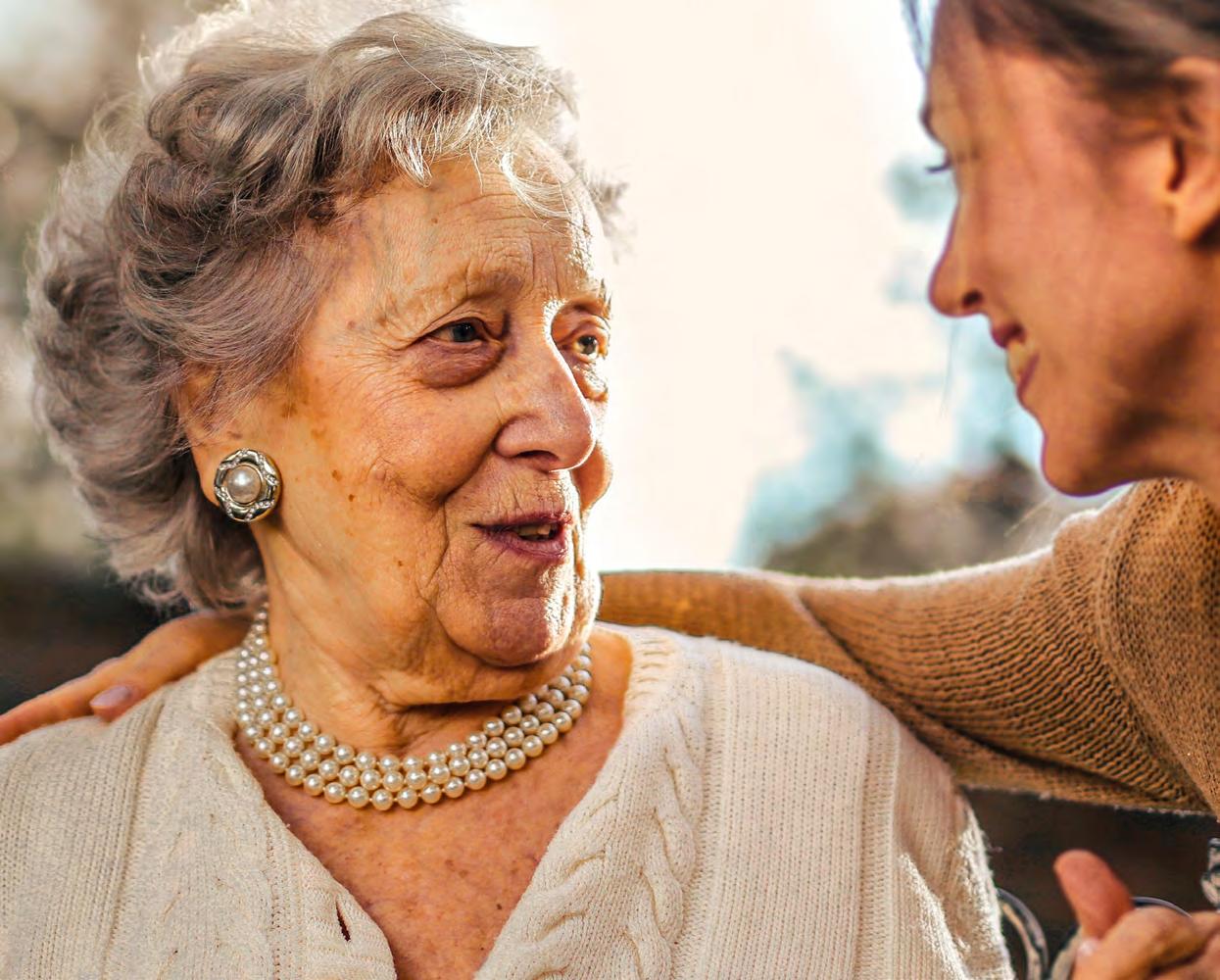
Supporting people to manage anger and find calm
Tess, 68, had struggled with anger her whole life. Rooted in childhood trauma, even small frustrations could trigger explosive reactions that left those around her constantly on edge. Despite trying other therapies, nothing brought lasting change.
She joined our Managing Anger online group program, an eight-week course exploring the roots of anger, identifying triggers, shifting unhelpful thinking patterns and building healthier communication skills. “The whole group was an ‘aha moment.’ Being with others, hearing yourself back, and being acknowledged – it’s very powerful,” Tess shared. She credits facilitators Erin and Michelle for creating a safe space and says support from peers helped her stay the course when it felt challenging.
Today, Tess says her relationships have shifted dramatically.
“I’m becoming the mum I always wanted to be.”
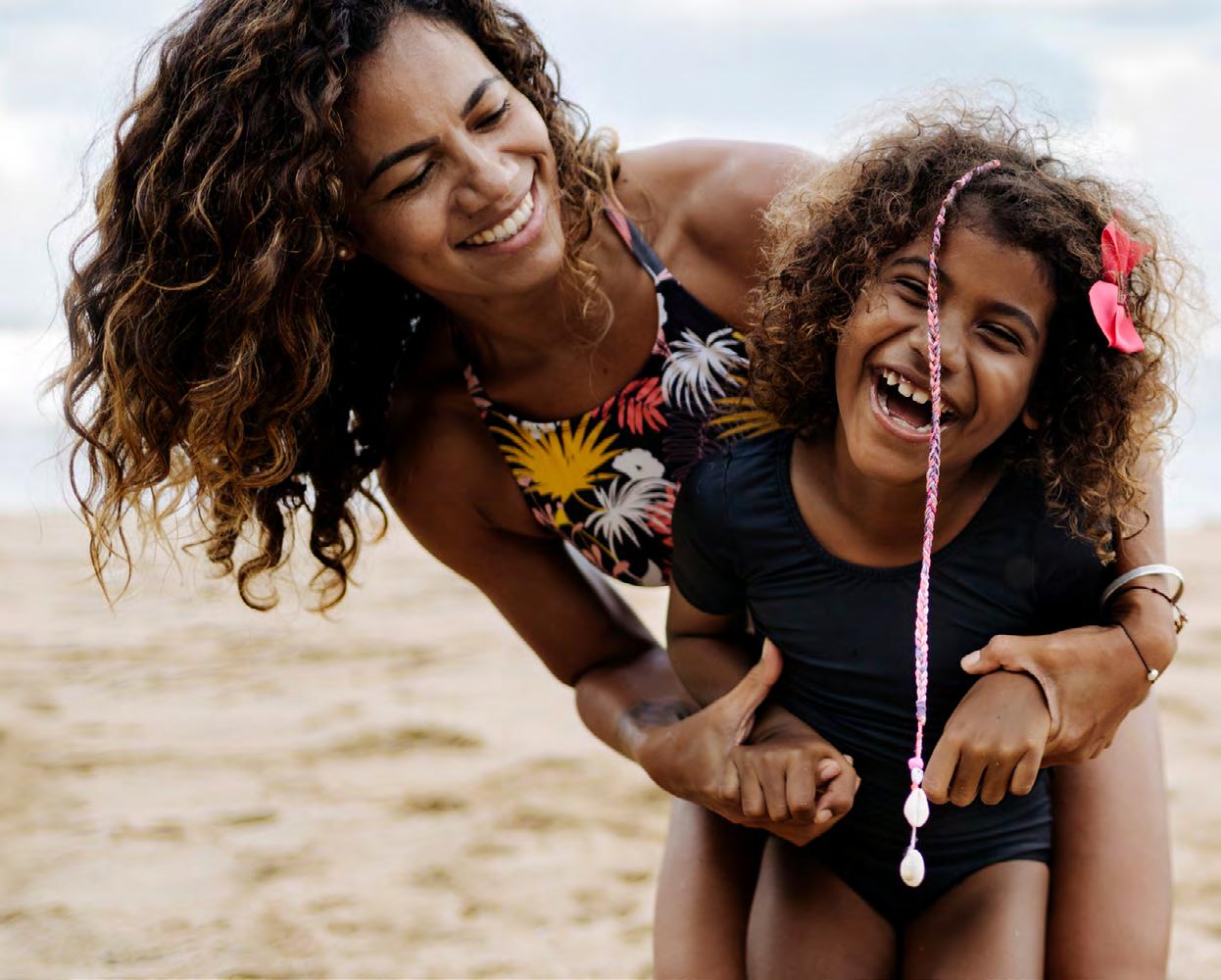
Supporting parents to reconnect with their children
Ana, a 35-year-old mother originally from Fiji, joined our Circle of Security: Kids in Care group. A single parent with two children in out-of-home care, she felt isolated at first and unsure if the group was for her. “In my culture, we don’t really talk about parenting challenges – it’s seen as shameful,” she explained.
Determined to rebuild her relationship with her children, Ana found strength in hearing other parents share openly. “Maybe I wasn’t such a bad mother after all,” she reflected. A turning point came during a session on emotional regulation: “You can’t pour from an empty cup.” With support from facilitators she described as “safe, enthusiastic and knowledgeable,” Ana practised strategies like reflective listening and noticing her children’s emotional cues. “Now when I talk to my kids, I don’t just tell them what to do – I ask how they’re feeling. That’s new for me.”
By the end of the program, Ana felt calmer, more present and more confident as a parent. She now attends local community groups and encourages other mothers from her community to seek support too: “If this program can change me, it can help others too.”
*Names, images and identifying details have been changed
Domestic + Family Violence
2,862
victim-survivors supported
men supported through the Family Advocacy and Support Service 530
1,266
support sessions provided to victim-survivors
healthcare professionals trained to better identify and respond to domestic and family violence, +205% YoY 177
men supported through Taking Responsibility, +27% YoY 357
Let’s Talk mediation and counselling sessions delivered 114
Domestic and family violence continues to cause deep harm across our communities. Its impacts are complex and long-lasting – but with the right support, people can find greater safety, stability and pathways to change.
Our services support adult and child victim-survivors, and people using harmful behaviours through counselling, safety planning, group programs and specialist referrals. Every client is screened for risk at intake, with safety planning built in. Men using violence are referred to men’s behaviour change programs, while victim-survivors – including children – are connected with specialist safety services. Our practitioners also work closely with police, the Department of Communities and Justice, and Independent Children’s Lawyers to keep safety at the centre of every decision.
This year brought major new investment in safety:
+ Expanded funding for our Domestic, Family and Sexual Violence Linker program, with a stronger focus on sexual violence and child sexual assault.
+ Renewed Federal contract for the Family Advocacy and Support Service – now the largest in the country – with dedicated men’s support workers across six court locations and 11 regional circuit courts.
+ $1.6 million from the NSW Government to expand Taking Responsibility men’s behaviour change programs into Maitland and Blacktown, supporting 200 more men and their families over the next two years.
Our Let’s Talk elder mediation and counselling program, once focused solely on therapeutic support for older people at risk of abuse, expanded to include professional training. More than 1,000 NSW Police officers completed our elder abuse training, rating it 9.4/10 for practical insights and service connections.
Beyond service delivery, we strengthened sector leadership – co-hosting coercive control workshops with The Hatchery, contributing to the NSW Domestic and Family Violence Workforce Strategy, and helping shape national men’s behaviour change policy. Our advocacy was pivotal in securing $10 million in new funding for support across NSW and co-authoring draft Terms of Reference for a proposed parliamentary inquiry.

“My children can now express themselves and I can help them with their big emotions instead of screaming at them and scaring them… I was so close to losing all of them.”
TAKING RESPONSIBILITY MEN’S BEHAVIOUR CHANGE PROGRAM PARTICIPANT
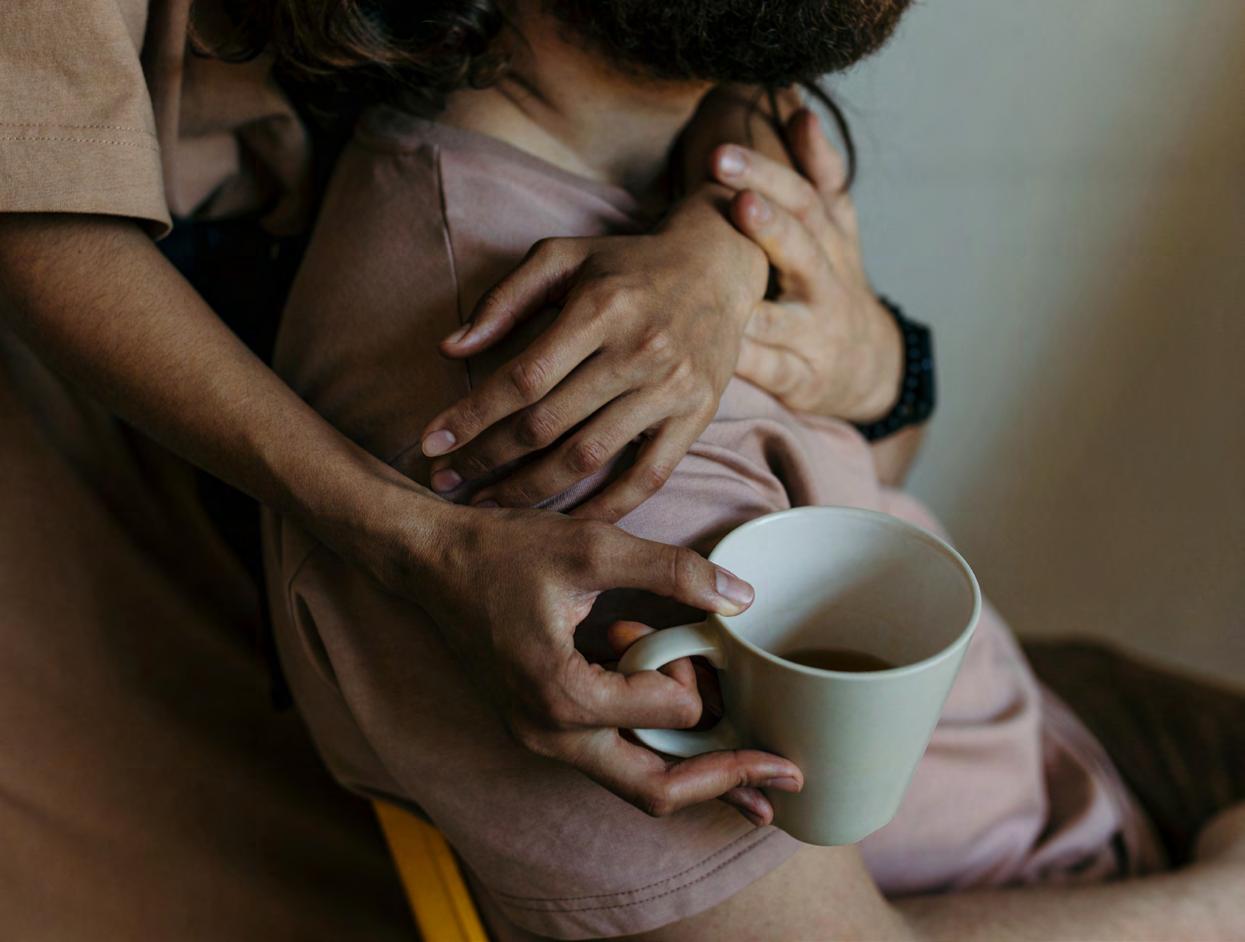
“That’s why in my marriage today, I’ve been 10 years ‘clean and sober’ of violence – totally down to starting that program.”
Supporting men to break the cycle of abuse
When Dylan phoned ABC Sydney 702 to share his story live on air, he wanted listeners to understand just how life-changing men’s behaviour change programs can be.
Years earlier, faced with an ultimatum from his partner – get help or lose the relationship – Dylan enrolled in Taking Responsibility, our program for men who use violence. “Lifechanging is a great way to describe it. I would also say life-saving, because it turned my life around.”
In the program, Dylan confronted a long history of abuse that had gone unchallenged for years. “In that relationship I was very emotionally and verbally abusive, but in my marriage before that I was physically and verbally violent. It started with a small raising of the voice and escalated over many years… it’s really hard to recognise those behaviours at the outset and then years later, it’s too late.”
Through Taking Responsibility, he learned accountability, respect and safety in relationships.
Now in a healthy marriage, Dylan looks back with both sadness and gratitude. “Nobody is born wanting to behave like that. Given the opportunity and the tools to fix something, I was able to change from the inside – and I’ll be forever grateful.”
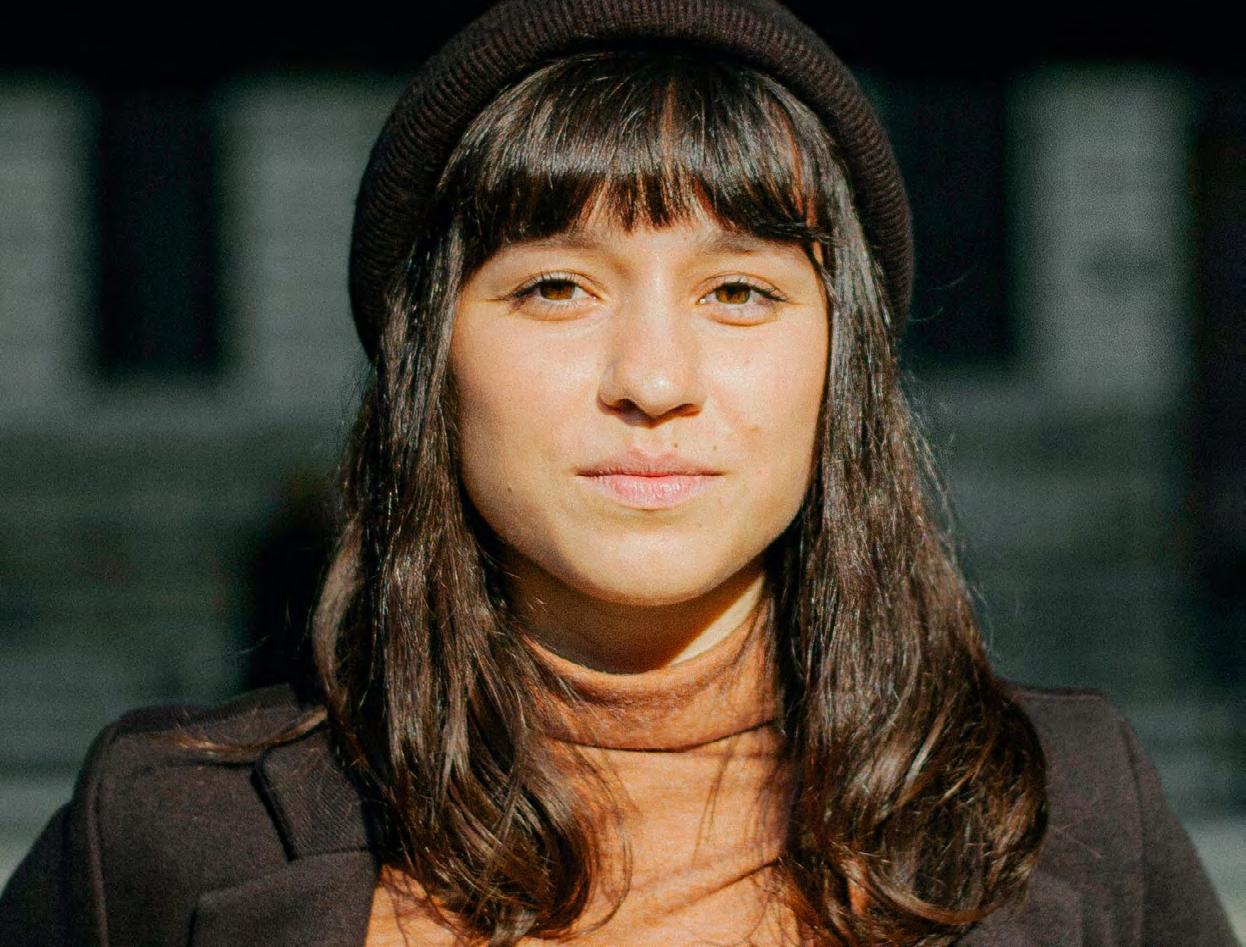
“What you have done for me has helped me tremendously and has also given me hope and encouragement to continue.”
Supporting mothers through advocacy and support
After seven years in the family law system, Maria finally secured final court orders that upheld her child’s safety and stability – despite early fears she might lose contact altogether.
With support from our Family Safety team and the Women’s Choice and Change group for women impacted by domestic violence, Maria found the confidence and advocacy she needed to keep going. In a message to our staff, she wrote:
Reflecting on her journey, Maria described a powerful shift in perspective.
“During one of the Women’s Choice and Change sessions, there was a slide with two pebbles standing in a busy flow. I chose that image to represent me and my son. If I were to choose an image now, it would be the two pebbles standing in a calm river with the sun shining over us and smiling.”
*Names, images and identifying details have been changed
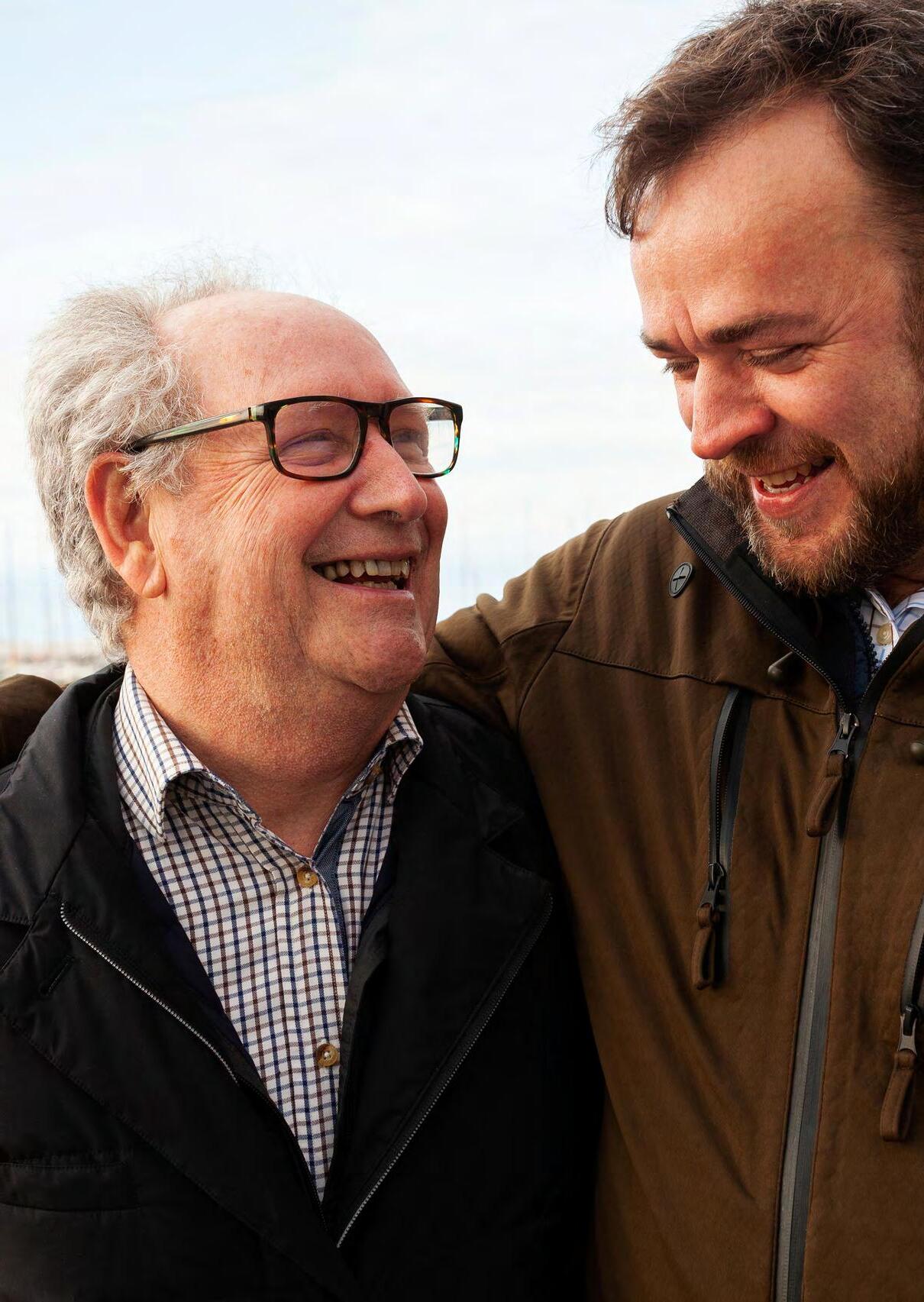
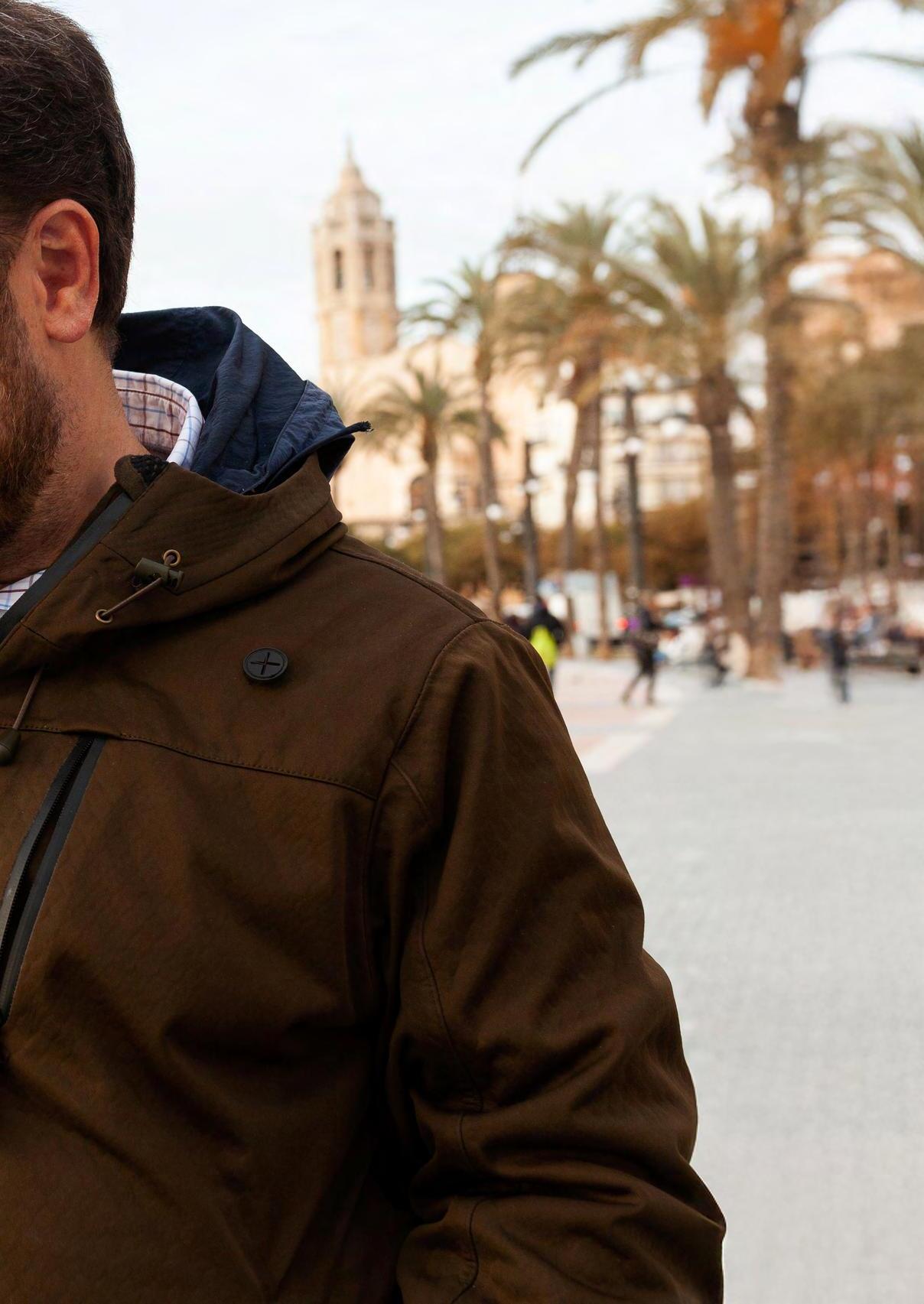
Supporting families to navigate conflict and care
When Davey, 54, contacted Let’s Talk, he was at breaking point. Living with his parents, Donald, 91, and Alma, 89, he had become their full-time carer, managing daily routines, medication, cooking, cleaning and personal care. The load left him feeling overwhelmed, isolated and unsupported by his siblings. The family was in turmoil. Davey had taken out an AVO against his brother, tensions with his sisters were high and police had been called to the house multiple times. His siblings worried about his capacity to provide safe care, raising concerns about isolation, clutter in the home and possible financial abuse.
In pre-mediation sessions, Alma described Davey as a devoted carer but admitted she longed for more family connection, while Donald spoke of wanting to enjoy simple pleasures like listening to jazz. Their neighbour and close friend, appointed alongside Davey as Power of Attorney and Guardian, emphasised the parents’ wish to remain in their home and avoid residential care. Mediated meetings were then held online, supported by a care worker to ensure Donald and Alma could participate fully. For the first time in years, each family member was able to express both their worries and hopes going forward.
The siblings agreed on practical steps: creating a family WhatsApp group and diary to share updates, scheduling visits to reduce conflict, helping declutter the home and supporting Alma and Donald to reconnect with family and community. Alma was able to visit her sister in palliative care, and Donald enjoyed regular jazz outings with his other son. Davey also engaged counselling and respite services, leaving him better supported, while his siblings felt more included. For Donald and Alma, the outcome was simple but important – the chance to spend their final years surrounded by family, in the comfort of their own home.
Community Development + Trauma Support
“Thank you for your continued work in supporting Forgotten Australians and former Child Migrants.”
DONNA DAVIS MP, NSW PARLIAMENT
517
people supported through experiences of institutional abuse
people supported through their experience of forced adoption 198
50
Aboriginal and Torres Strait Islander people supported through Caber-ra Nanga Engage
5,078
children and parents supported to build stronger connections through Community Builders
Our community development programs support people facing profound challenges –from forced adoption and cultural disconnection to social isolation. We create pathways for people to reclaim identity, reconnect with history and strengthen their place in community.
This year, our specialist Wattle Place centre was formally recognised in NSW Parliament for its outstanding work with Forgotten Australians and Former Child Migrants – a powerful acknowledgement of their trauma-informed support, advocacy and leadership.
Our Forced Adoption Support Service continued to walk alongside people affected by historic adoption practices, helping them reclaim identity, reconnect with family and make sense of their history.
Through Community Builders, we worked hand-in-hand with multicultural communities in Northern Sydney to foster connection and resilience. A finalist in the 2024 WayAhead Mental Health Matters Awards, the program continues to break new ground with initiatives like the Chinese Family Weekend Camp – a three-day event blending culturally tailored parenting workshops, sports and recreation for teens, and one-on-one family sessions focused on communication and connection. Designed as an early intervention measure for at-risk families, the camp helps address social isolation, strengthen parenting skills, and prevent long-term disadvantage. Demand has been so strong that waiting lists are now routine – a clear sign of the trust communities place in it and the difference it’s making.
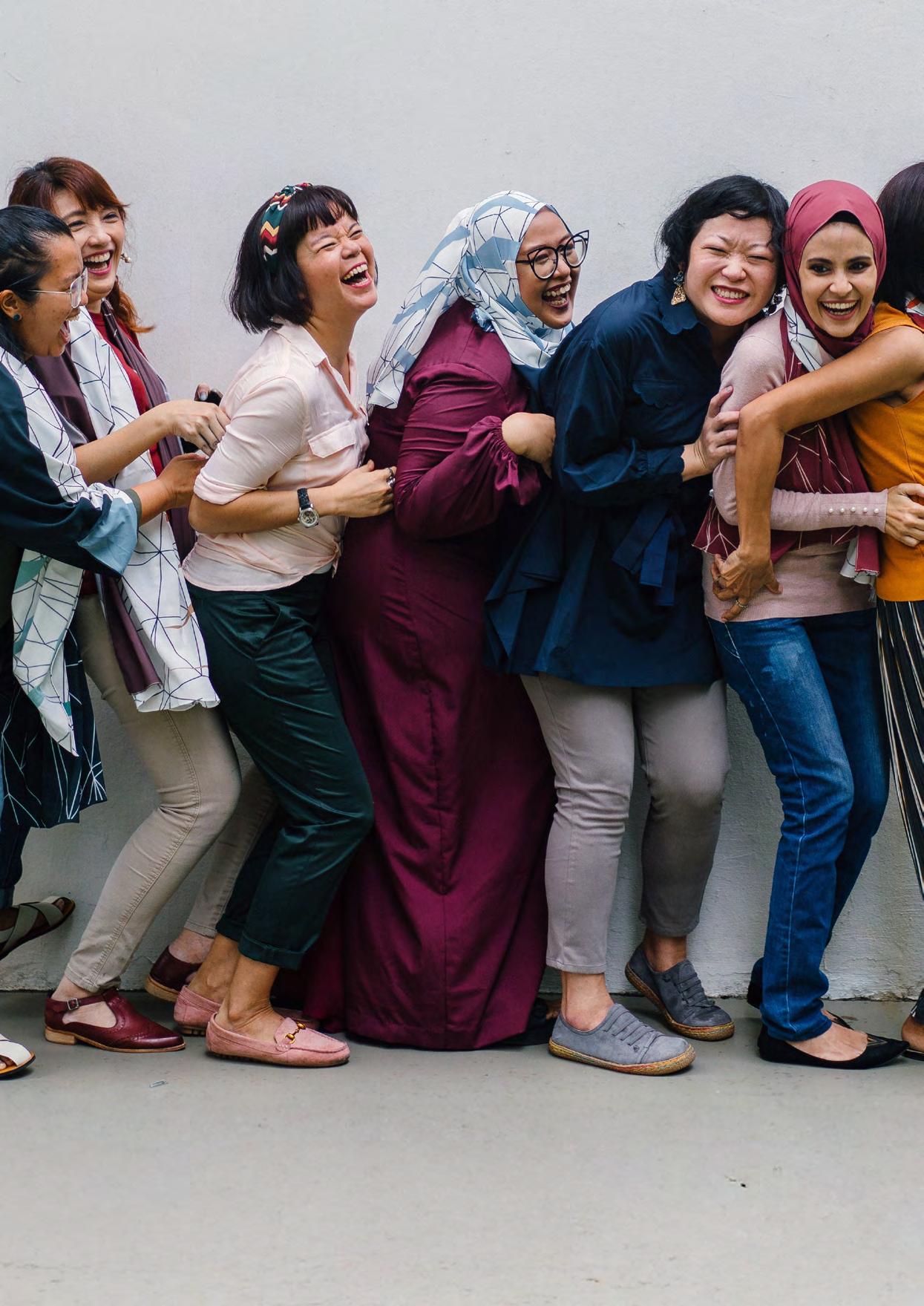
Supporting migrant women into employment
This year, our Community Builders team partnered with TAFE NSW to deliver the Employment Pathways Program for Migrant Women in Northern Sydney. The initiative supported 30 recently arrived migrant and refugee women to build confidence, skills, and networks to prepare for work, further study or volunteering.
With a 100% completion rate, outcomes included women securing jobs, reengaging in education and stepping into mentoring roles. Participants described gaining greater confidence, clearer career goals and a stronger sense of belonging. As one woman shared, “The sessions on résumés, cover letters, and interview preparation gave me new hope for my future.”
The program’s success was strengthened through collaboration with TAFE NSW, local employment services and multicultural mentors. Looking ahead, plans include expanding to more regions, embedding digital literacy and psychosocial support, and advocating for systemic change around childcare and recognition of overseas qualifications.
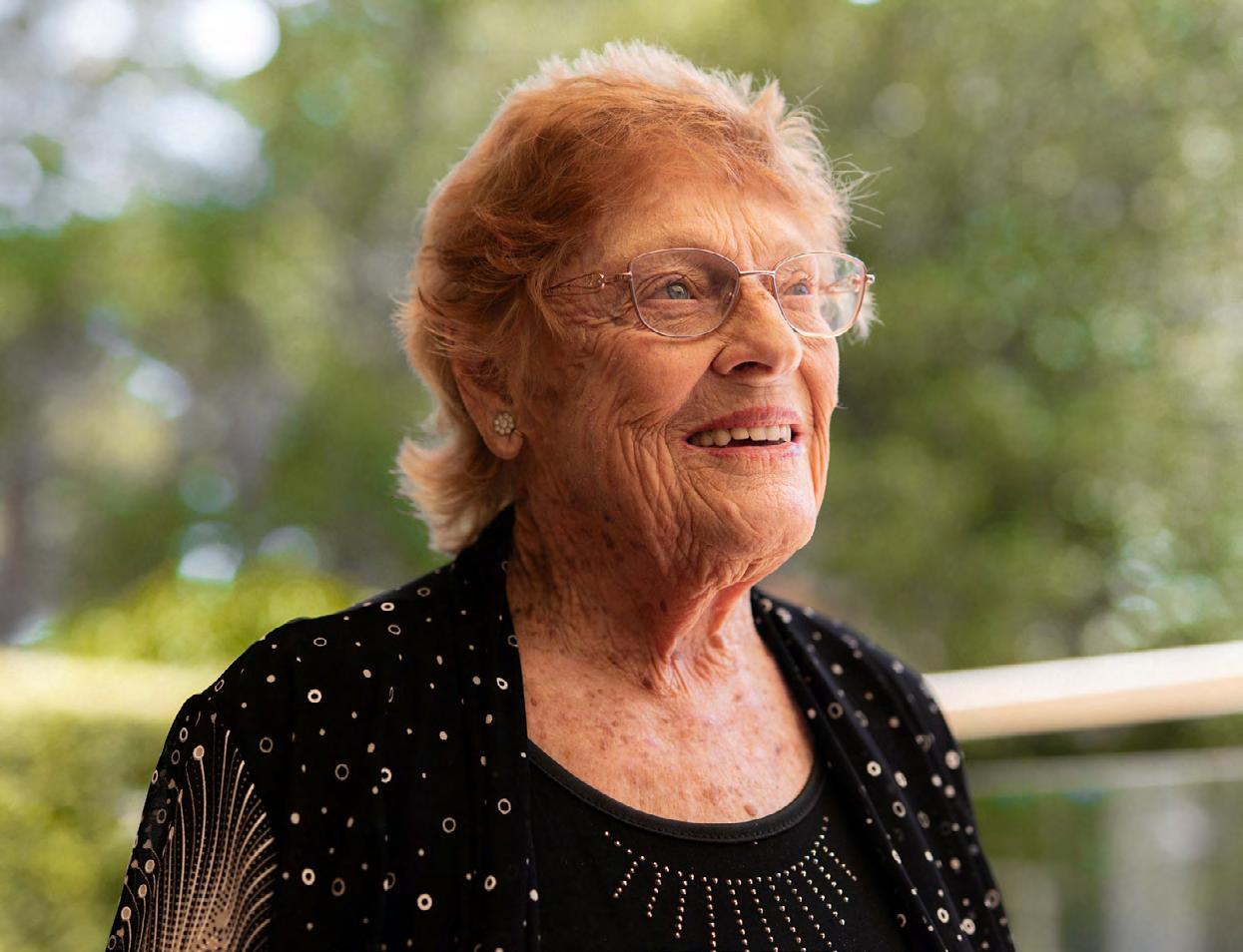
Supporting people to reconnect with family and identity
At 83, Mavis turned to Wattle Place’s Forced Adoptions Support Service to fill in the missing pieces of her life story. Adopted as an infant, she had grown up with little information about her biological parents. Her mother’s details had been cut from her birth certificate and her father’s name was left blank. For decades, she and her late twin brother searched for answers.
With support from her Wattle Place caseworker, Mavis began a new chapter in her search. The team coordinated DNA testing, family tree research and official record requests, carefully guiding her through each step. Months of work led to a remarkable discovery – not only did Mavis finally learn her father’s name, but she also found two half-siblings living nearby.
With Wattle Place by her side, she was finally able to meet them in person – an emotional reunion that brought joy, belonging and closure after a lifetime of questions.
Now 88, Mavis says she feels at peace. “I want people to know that you deserve to know the whole story of your life. I finally feel like I belong.”
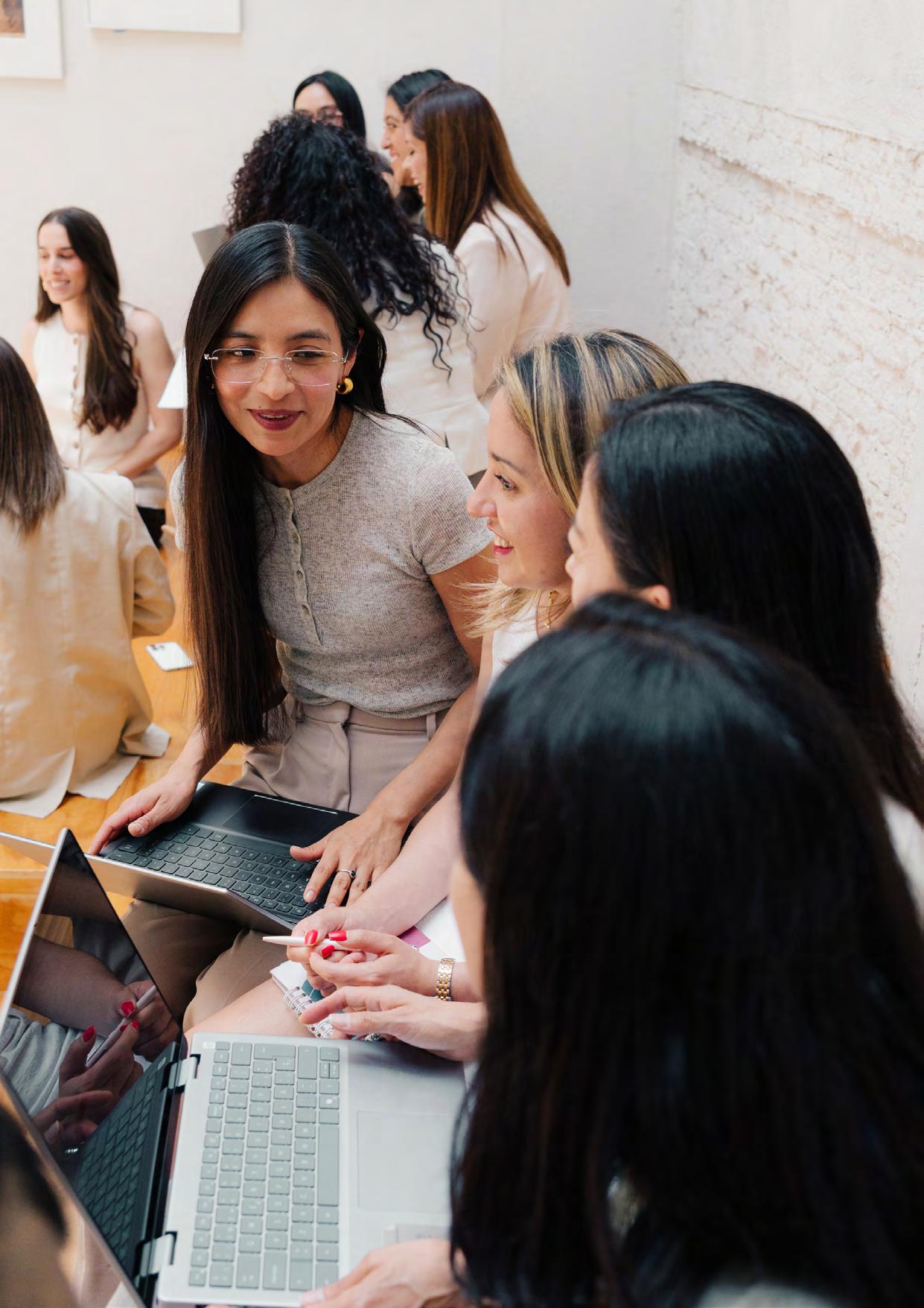
“One of your delivery’s most effective and commendable aspects is the triangular approach that includes staff, students, and parents… This whole-community model promotes consistency in expectations and strengthens the support systems surrounding each student.”
SCHOOL LEADER, COMMUNITY BUILDERS PROGRAM PARTICIPANT
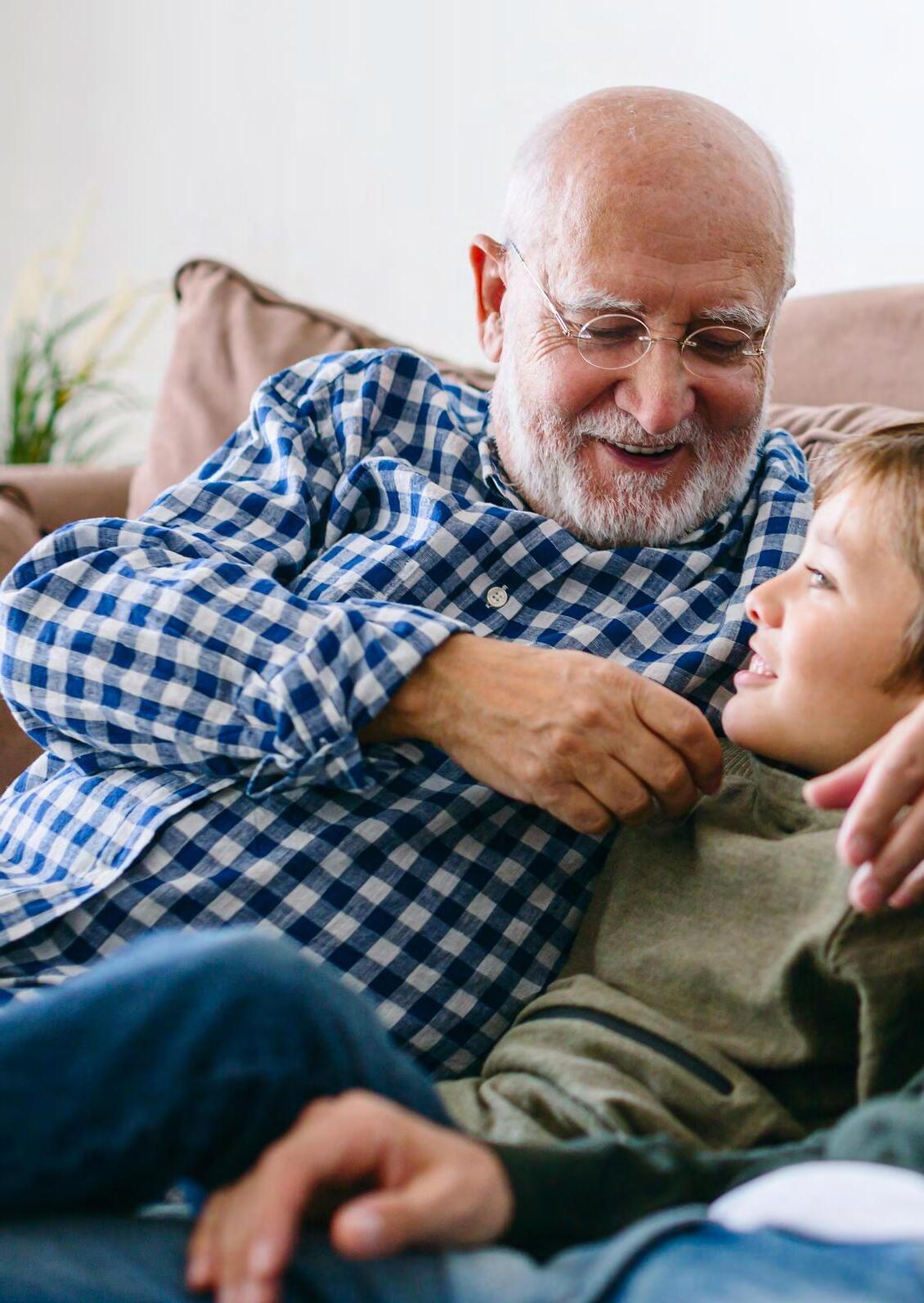
Supporting healing across generations
Frank, a man in his sixties with a serious illness, had lived most of his life carrying the pain of abuse he experienced as a child in an institution. Frank had previously applied to the National Redress Scheme (a government program providing recognition, counselling and compensation for survivors), and his request for urgent support was initially refused.
With help from the Wattle Place National Redress Support Service team, the decision was overturned. Frank received compensation and the formal apology he had been waiting for his whole life, before his health declined further. For Frank’s adult son, witnessing the apology was deeply moving: “I understand why dad was the way he was with us now. I am sad he couldn’t share this side of himself, but I am sure we would have loved him anyway.”
Frank’s journey shows how advocacy and support can create not only personal healing, but also greater understanding across generations.
*Names, images and identifying details have been changed
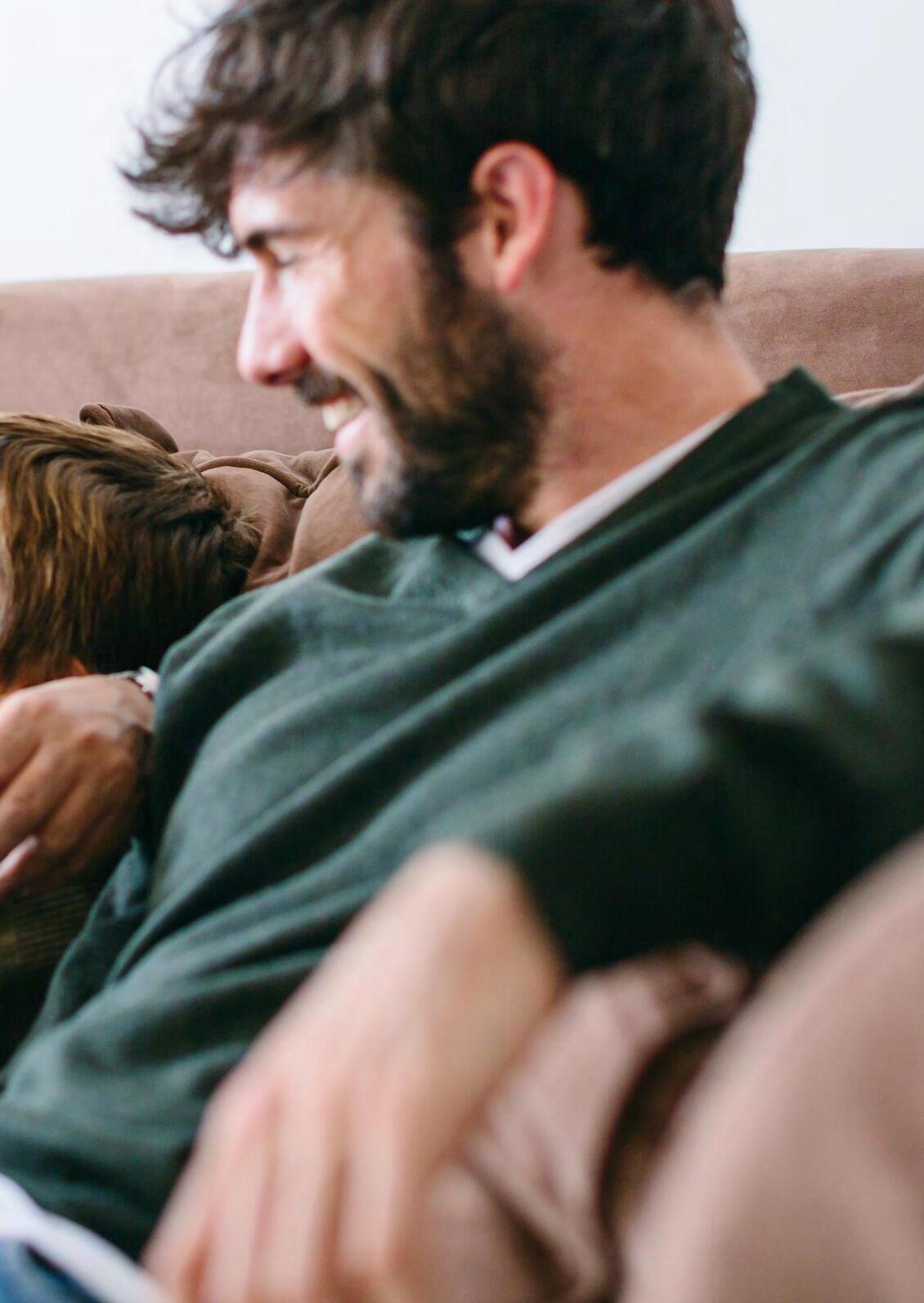
Children’s Contact Service
“This service made a huge difference for our family. It gave my kids a safe place to connect with their dad without the stress and worry.”
CHILDREN’S CONTACT SERVICE PARENT
children experienced safe, quality time with a parent
2,909 satisfaction among participants
297 safe changeovers facilitated between parents
86% felt heard and understood 83%
1,893
sessions held to strengthen family connections
Our Children’s Contact Service (CCS) provides a safe, supportive environment where children can spend time with a parent they don’t live with, or where separated parents can manage changeovers without conflict.
For families facing distress, safety concerns or complex parenting dynamics, CCS reduces risk and makes time together calmer and more positive. Staff prioritise each child’s wellbeing, while helping parents maintain, or sometimes rebuild, connection.
This year, we embedded programs such as Kids in Focus – a course designed to help parents understand the impact of separation on children – and expanded dedicated support sessions for young people. These gave children the chance to express how conflict was affecting them and gave parents new insights that encouraged them to step back from disputes and re-focus on what mattered most: their children’s wellbeing.
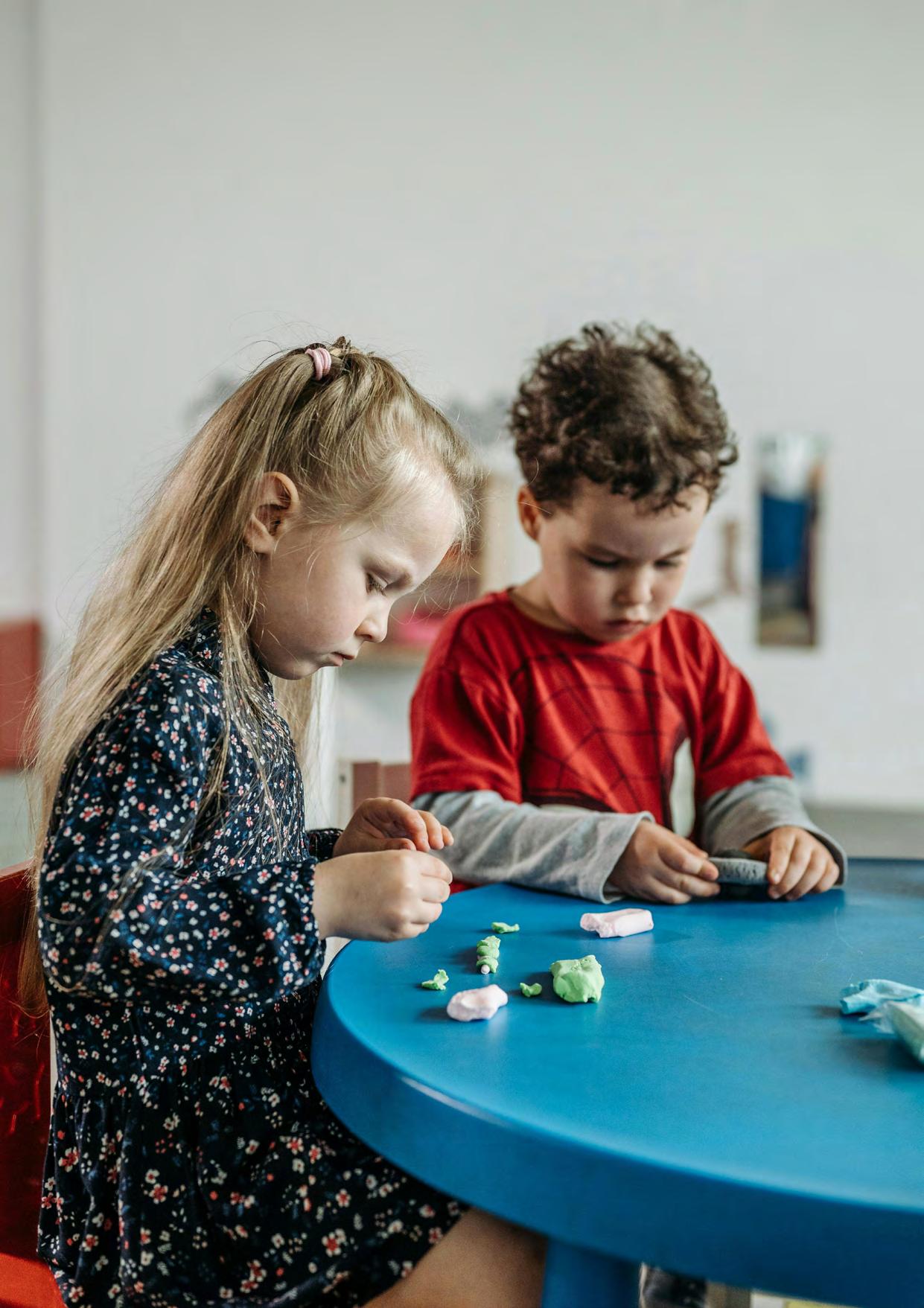
“Staff created a space where I could safely rebuild my bond with my children. It gave me confidence as a parent again.”
CHILDREN’S CONTACT SERVICE PARENT
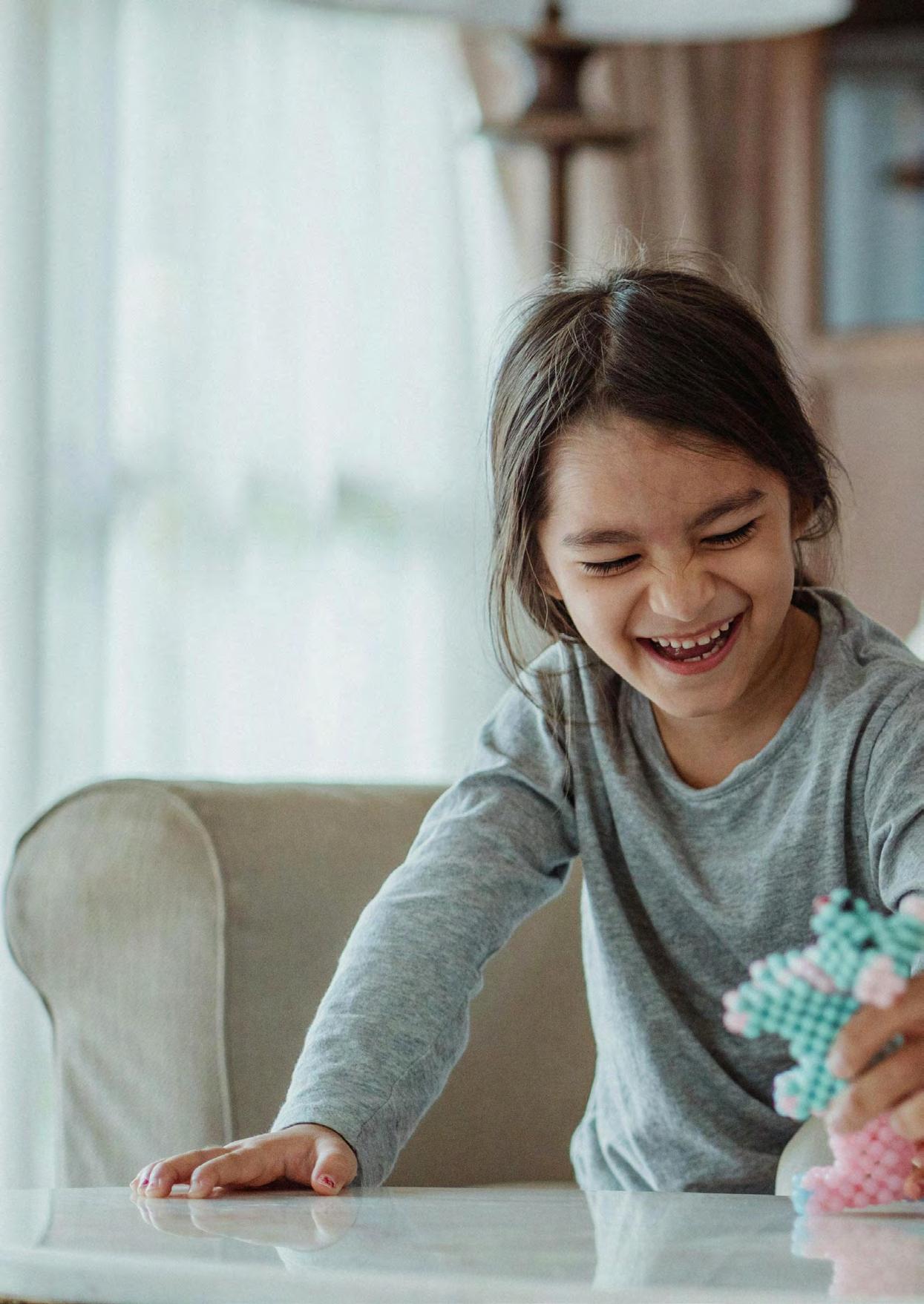
Supporting safe spaces for family reconnection
After a period of hospitalisation for her mental health, Hana, a mother of three from a culturally and linguistically diverse background, was referred to our Children’s Contact Service to begin reconnecting with her children who were living with their father.
Recognising the family’s unique needs, staff offered interpreter support and linked Hana with culturally and linguistically appropriate services. For her eldest child, Omar, who had autism, the team created a tailored support plan, including a sensory room with calming toys and one-on-one assistance when needed.
Over time, the children became more relaxed and affectionate during visits, and Hana felt reassured knowing cultural and developmental needs were being respected. After five supervised sessions, the family progressed to unsupervised contact, with the centre continuing to provide safe changeovers. This careful, child-focused approach helped rebuild trust and gave the family a stronger foundation for the future.
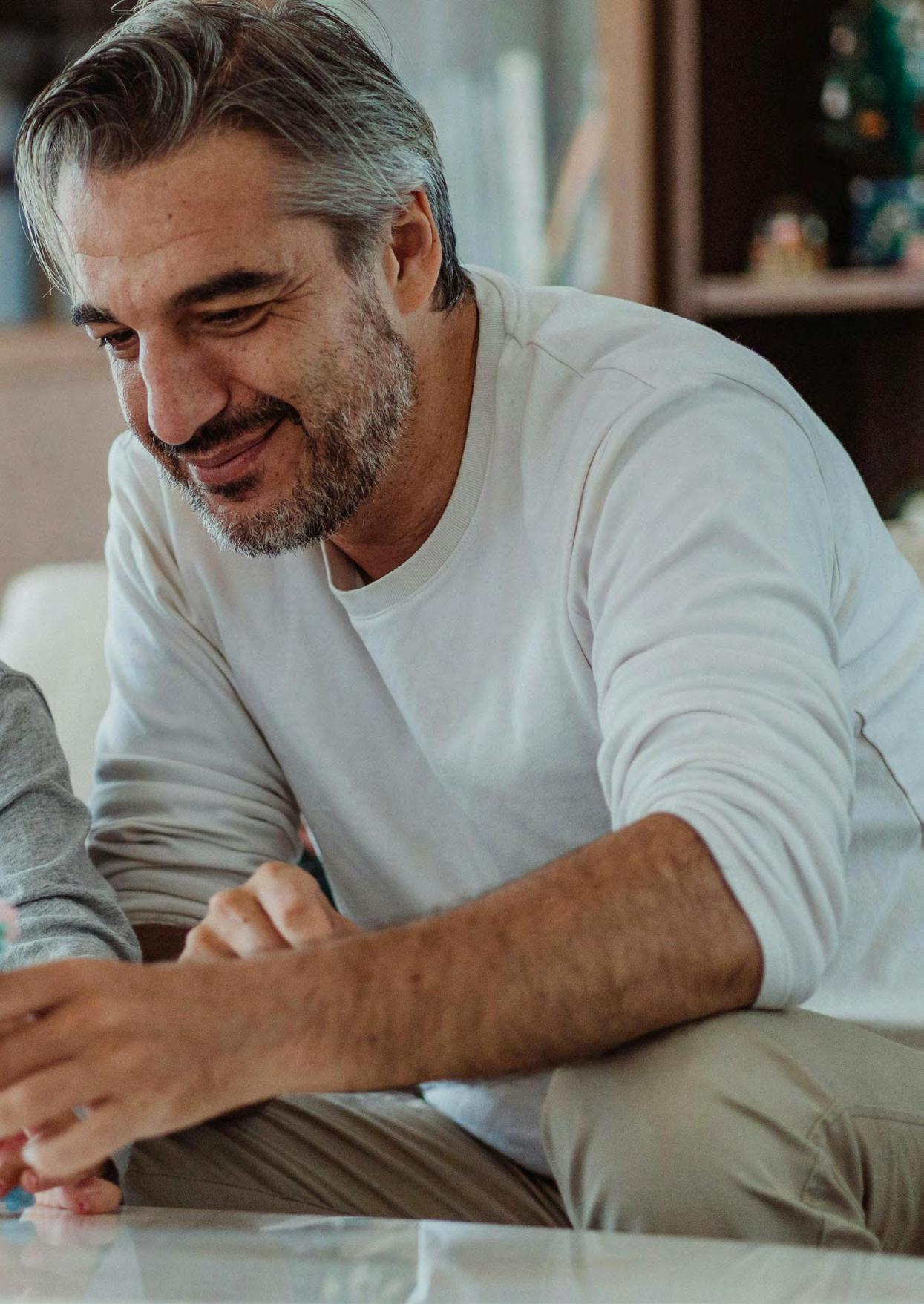
Supporting safe reunions between parents and children
When Sam and Dee separated, their daughter Abby was just 12 months old. By the time she turned three, Dee wanted Abby to reconnect with her father but was anxious about Sam’s past drug use and what it might mean for their child.
Dee approached our Children’s Contact Service seeking reassurance. Staff spent time listening to her concerns and held several orientations before contact began, helping her feel more confident about Abby’s safety.
With supervision in place, Sam slowly rebuilt his relationship with Abby, following her lead in play and responding to her cues. Over six months, Abby grew more relaxed and engaged, and Dee was relieved to see her daughter thriving. Both parents later agreed to mediation to plan next steps, supported by CCS changeovers.
By moving carefully at Dee’s pace, CCS created a safe space for Abby to know both her parents and for the family to take positive steps toward co-parenting.
Workplace Wellbeing
“I didn’t realise how often people come to me with personal concerns until I did Accidental Counsellor . Now I feel like I actually know what to say, and how to listen, without taking it all on myself.”
ACCIDENTAL COUNSELLOR PARTICIPANT
888
people trained as Accidental Counsellors or Accidental Mediators
practitioners attended Effective Group Leadership training 53 practitioners participated in our Online Groupwork Symposium 150
Our Workplace Wellbeing programs strengthen professional relationships, lift performance and support mental health by building practical skills that apply both at work and in life. This year, we delivered training on motivation, stress management, confidence, collaboration, conflict resolution, leadership, communication and emotional wellbeing.
A highlight was the launch of Accidental Mediator – a practical half-day course equipping leaders to manage low-level disputes before they escalate. Early uptake was strong across community, government and corporate sectors.
We also expanded delivery of our flagship Accidental Counsellor program and other tailored training. To sharpen our focus, we made the strategic decision to close our Employee Assistance Program, allowing us to concentrate on the areas where we bring unique expertise – building skills, strengthening relationships and supporting long-term wellbeing in workplaces.
Beyond delivery, we played a leadership role in the sector, co-hosting the Online Groupwork Symposium with Western Sydney University and Interrelate. More than 150 practitioners took part, with a dedicated Aboriginal online groupwork stream highlighting the power of culturally led approaches.

“What a fantastic idea, everyone needs this. Especially in today’s workplaces.”
ACCIDENTAL MEDIATOR PARTICIPANT
“Now I can step in before conflict grows – and keep the focus where it belongs.”
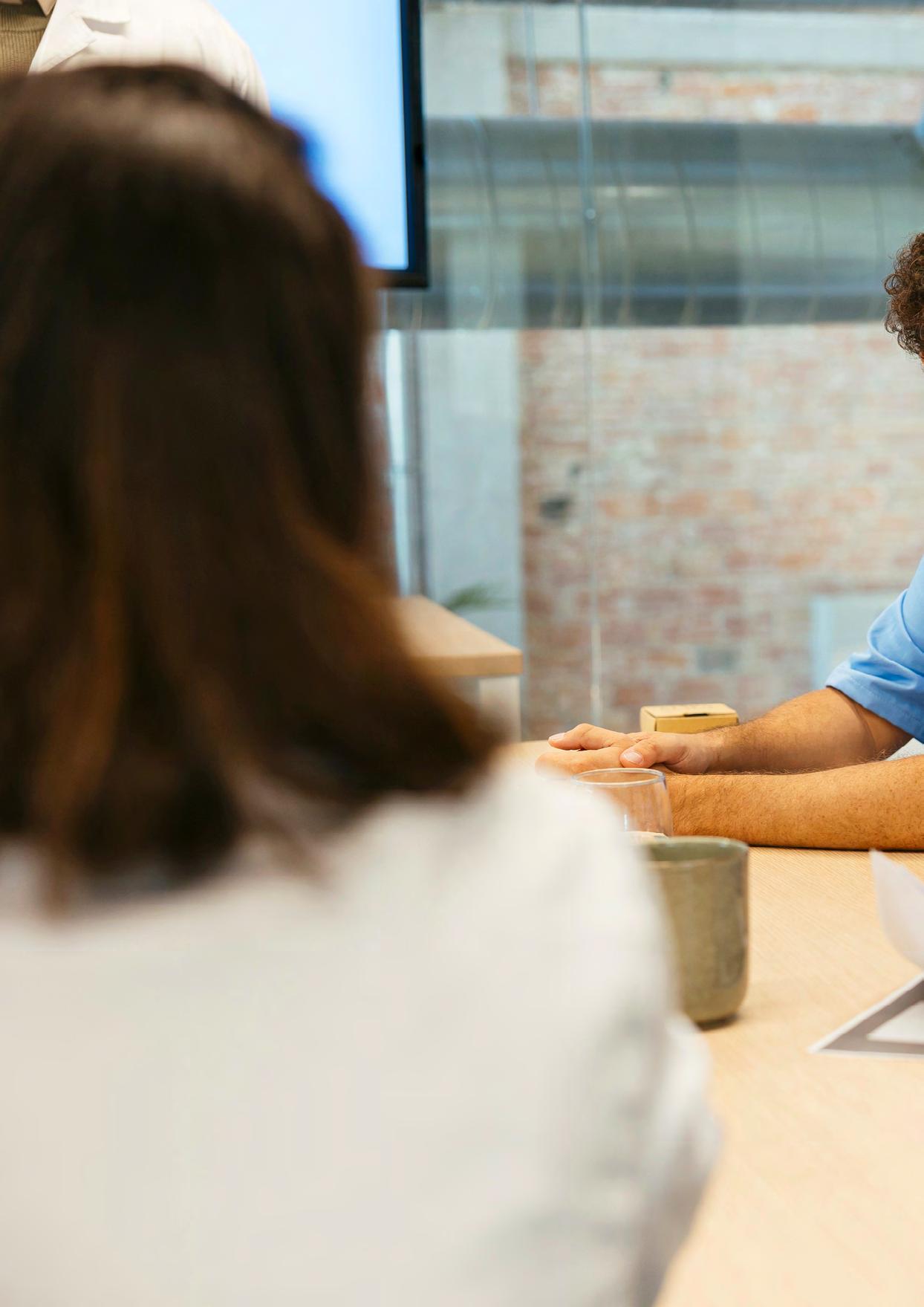
Supporting workplaces to resolve conflict early
As a manager in a busy hospital ward, Maria often found herself caught in the middle of staff disputes. Under pressure, small disagreements about patient care or workload could quickly escalate, leaving her team stressed and distracted.
She attended the Accidental Mediator workshop to build confidence in stepping in early. The training gave her practical strategies to de-escalate tension, listen without judgement and guide colleagues towards their own solutions.
A few weeks later, Maria emailed us to share how she’d put the skills into practice. When two nurses clashed over shift responsibilities, she brought them together, helped each explain their perspective and reframed the discussion around patient needs. The conflict was resolved in minutes and both staff left with a clear plan for working together.
Since then, Maria says the atmosphere on her ward has noticeably improved – her team feels more supported, communication flows more easily and challenges are handled with greater calm and collaboration.

Education + Engagement
1.3m
people accessed support and education through our website
1.1m
people reached via social media. +10% YoY
274,307
educational video views, +74% YoY
This year, we made relationship support more accessible than ever – reaching people across NSW (and beyond) with practical tools, trusted advice and a fresh new look.
Our digital presence grew rapidly: 1.3 million people engaged with our Knowledge Hub, 1.1 million were reached through social media and views of our educational videos increased by 74%. Campaigns such as RelationTIPS – short, practical videos on everyday challenges – and Respectful Relationships – an animated series promoting safe and healthy behaviour – were among the most watched, reflecting a strong appetite for clear, relatable guidance.
We expanded the way we share client stories, using video to highlight lived experiences and reduce stigma around seeking support. Mavis’s Story – marking the 12th anniversary of the Federal Apology – was praised for its authenticity and emotional impact. Phil’s Story showcased how Let’s Talk elder mediation can heal fractured family relationships and demystify the service.
We also launched Webchat, giving people a fast, confidential way to connect with our Client Services team. Whether seeking immediate answers, being linked to specialist staff, or requesting a callback after hours, clients can now access the right support more quickly – while reducing call volumes.
To cap it off, we completed a major brand refresh, rolling out a new national logo and embedding the visual identity across brochures, signage and public facing education materials. Every touchpoint now more clearly reflects who we are and the values we stand for and has been crafted to ensure our services are as clear and accessible as possible for clients.
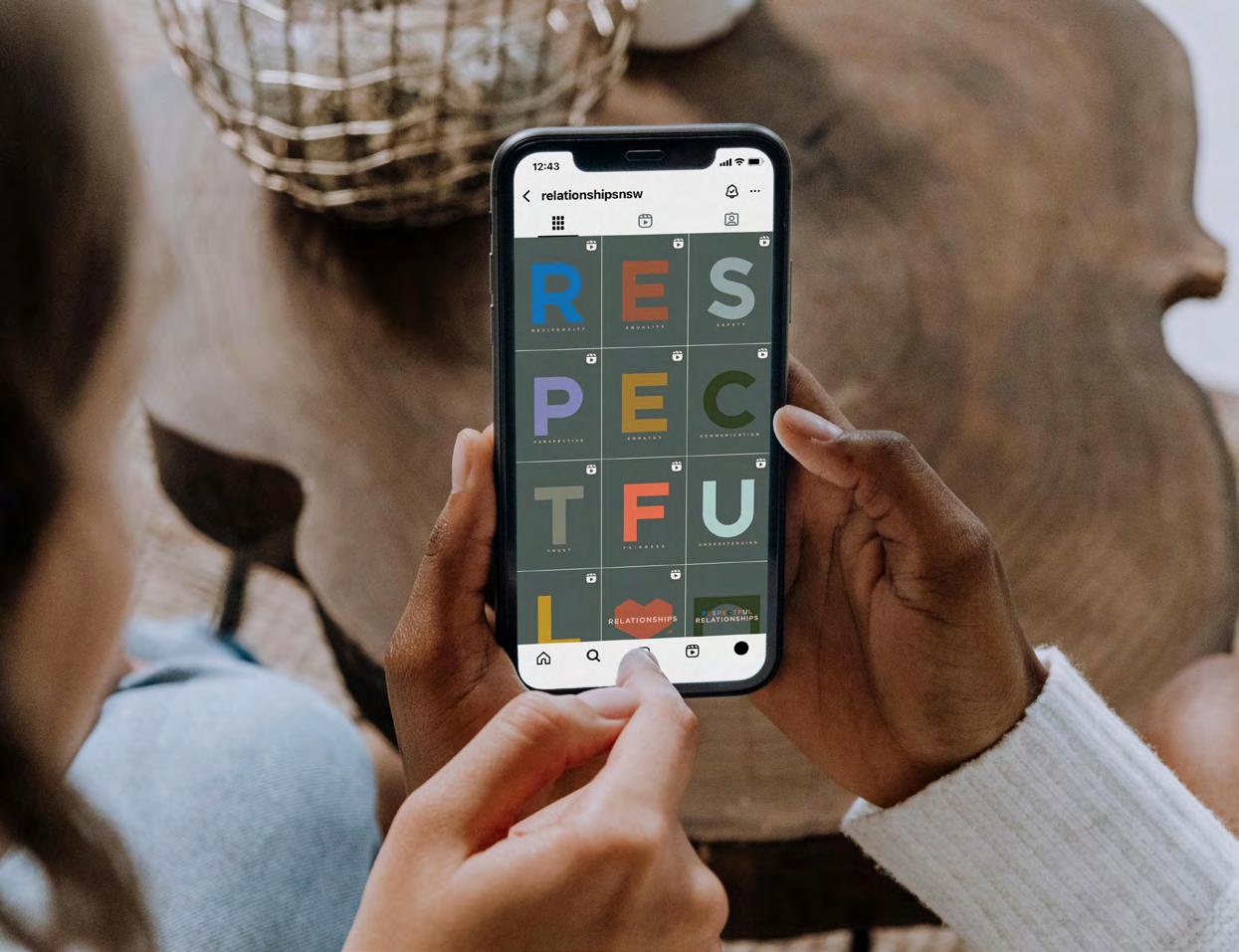
Supporting respectful relationships through education
Our Respectful Relationships animated video and social media series used inclusive language and everyday scenarios to show what healthy relationships look like. Viewed more than 146,000 times across Facebook and Instagram, it positioned us as a trusted voice in this space.
As one viewer shared:
“The seesaw metaphor really stuck with me. It made me realise I’d been letting my partner carry too much of the load. It was a simple image, but it hit home.”
With respectful relationships now part of the school curriculum, the series has strong potential for expansion. We’re exploring how it could be adapted into interactive workbooks and classroom resources so schools and community groups can use it directly.
Research, Advocacy + Policy Influence
key policy submissions contributed
4 ministerial visits
56 media mentions
2,600+
Our research and policy work ensures that the voices of our clients, staff and communities influence change – from frontline practice to government reform. We contribute to sectorwide progress by sharing what we learn and pushing for services and policies that reflect people’s real-life needs.
This year, our advocacy gained significant momentum. We contributed to national family law reform debates and highlighted how cost-of-living pressures are straining relationships. Our experts featured in ABC, SBS, The Guardian, Sydney Morning Herald, Mamamia and Women’s Agenda, and we partnered with the NSW Government to support major announcements such as the expansion of men’s behaviour change programs.
We also strengthened the evidence base for our advocacy, partnering with academics and contributing to key consultations and submissions, including the NSW Parliamentary Inquiry into Loneliness and Social Isolation, the Review of Family Law Services and the NSW Domestic and Family Violence Workforce Strategy.
We amplified lived experience in policy forums – with Wattle Place clients sharing the impact of forced adoption and ageing, and frontline practitioners shaping consultations on family law, coercive control and workforce development.
We’re confident that these contributions are shaping stronger systems and policies, so that healthier, safer relationships are possible for more people across NSW.
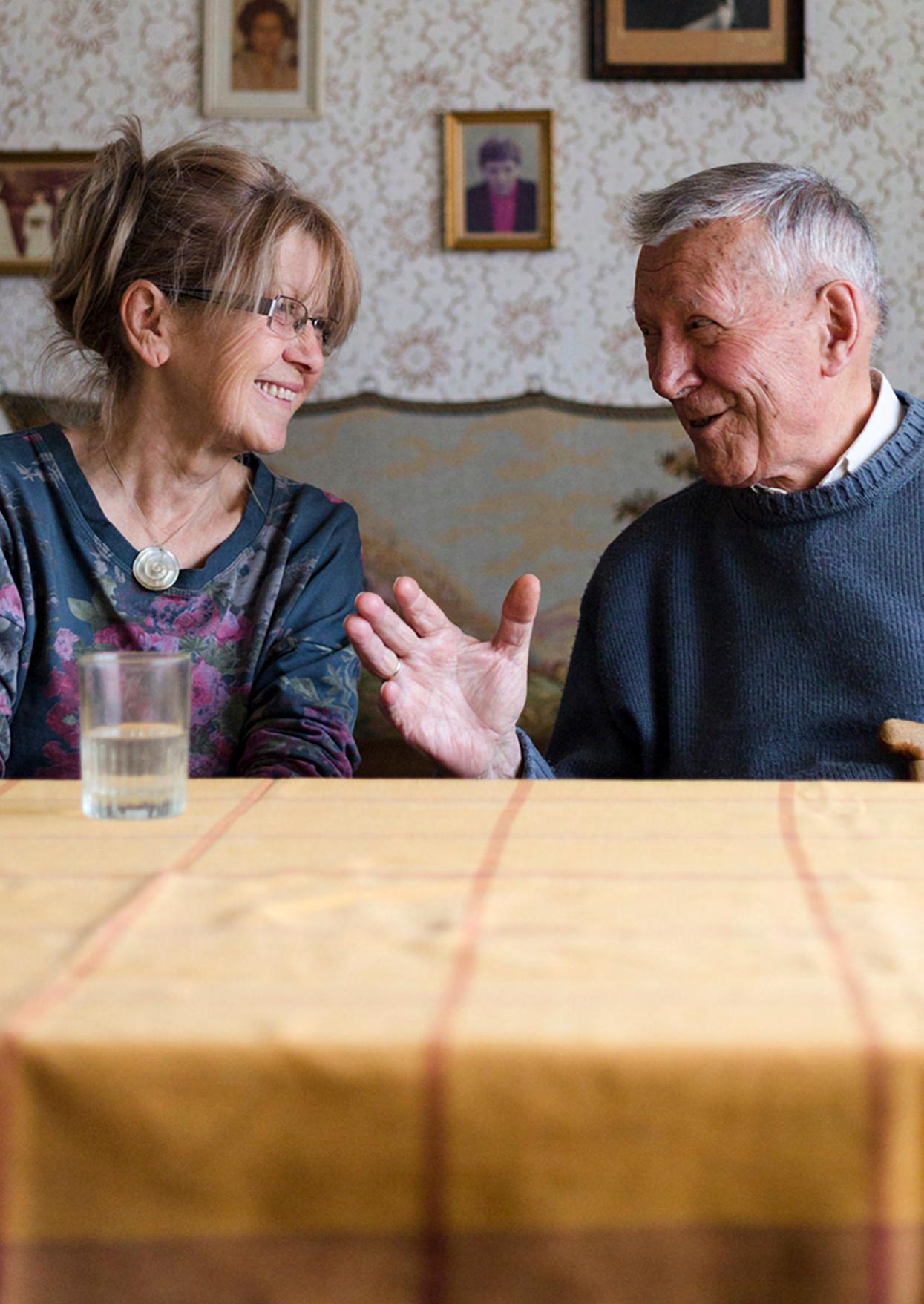
Supporting the rights of older people through advocacy
This year we released a major policy paper, Ending the Abuse of Older People in NSW: A Policy Agenda for 2030, highlighting the urgent need for stronger services and systemic reform. Research shows that at least 15% of older people experience abuse, most often from family members, yet NSW remains underfunded and fragmented in its response.
Our paper calls for sustained investment in specialist services, greater integration across health, community and justice systems and stronger legislative protections – including reforms to coercive control laws and enduring power of attorney arrangements. It also highlights the need for mediation and intergenerational supports to prevent conflict from escalating into abuse.
The release generated significant media attention, with coverage across outlets including the Daily Telegraph and ABC Radio. By amplifying the voices of older people and service providers, we are working to ensure elder abuse is recognised as a critical public policy issue, and that the NSW Government commits to an ambitious agenda to end it within a generation.
Financials
During the 2024-25 financial year, Relationships Australia NSW delivered a surplus of $632,000. The result compared favourably to the $140,000 deficit in the previous year. Total FY25 operating revenue was $42M, at a similar level to the previous year’s revenue of $42.2M.
Of total revenue, $39.9M was received in funding from various government sources including the Department of Social Services, Attorney-General’s Department, NSW Department of Communities and Justice, Legal Aid NSW and Primary Health Networks.
Additional Financial Report details are available on our website.
Governance
Relationships Australia NSW is a company limited by guarantee, incorporated in Australia, and guided by a committed Board of Directors. We’re thankful for their wisdom, leadership and support.
CEO
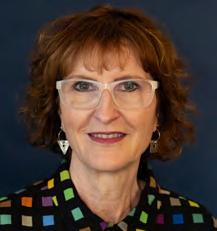
Elisabeth Shaw
Board Members
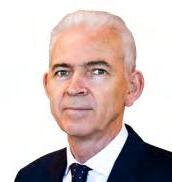
Dr. Stephen Hollings Chair
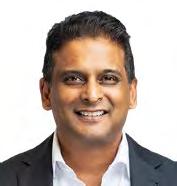
Sanjay Sridher Chair of the Finance, Audit and Risk Committee
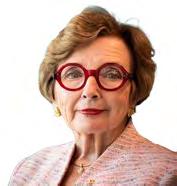
Kathryn Greiner Deputy Chair
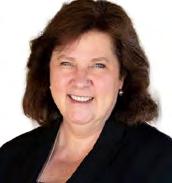
Liz Forsyth Chair of the Governance, Remuneration + Nominations Committee

Cameron O’Reilly
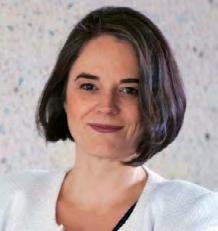
Simone Carton (since November 2024)
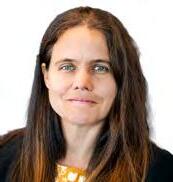
Katie Moore
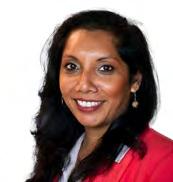
Andrea ChristieDavid (retired November 2024)
Thank You to Our Supporters
Our sincere thanks to our funders and partners who have made invaluable contributions to Relationships Australia NSW and the communities we support this year. Every dollar received helps us to strengthen relationships across NSW and improve lives.



